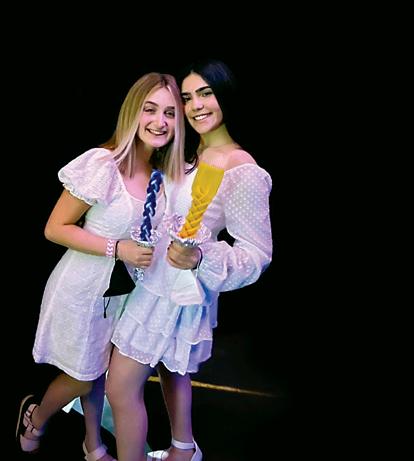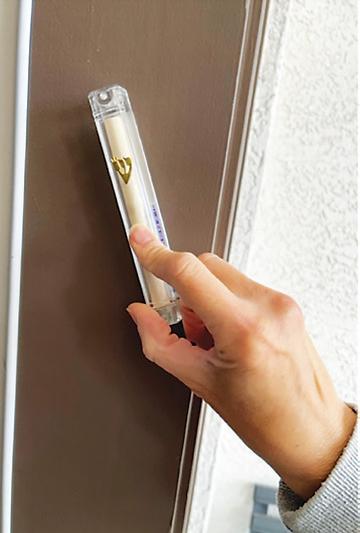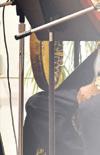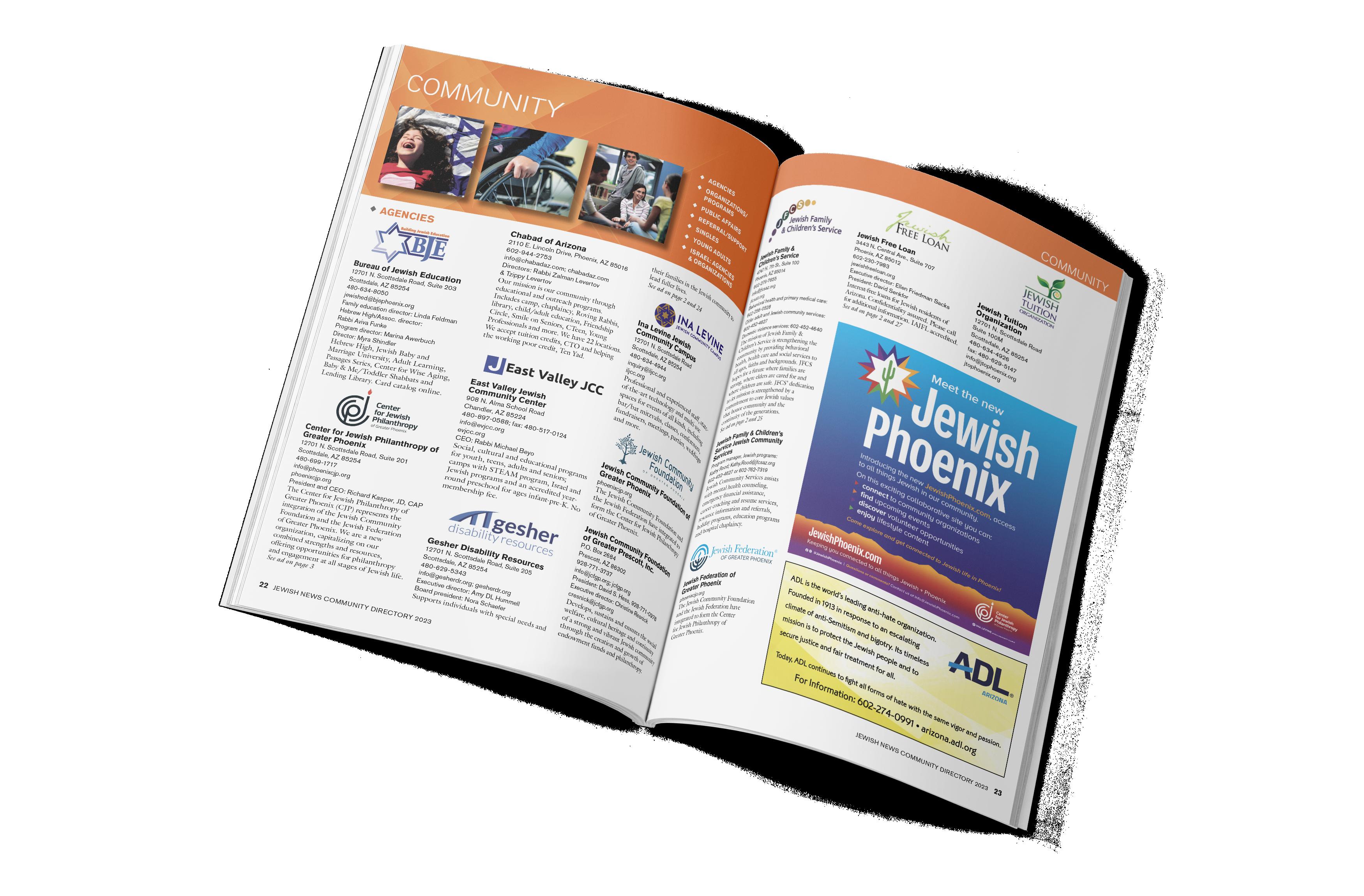RABBI ROSEN RETURNS

Rabbi Tracee Rosen comes out of retirement to lead Temple Beth Sholom of the East Valley


SENIORS
‘Better Together’ pairs Jewish seniors and Gesher members for intergenerational exchange


Rabbi Tracee Rosen comes out of retirement to lead Temple Beth Sholom of the East Valley


‘Better Together’ pairs Jewish seniors and Gesher members for intergenerational exchange
JewishPhoenix.com, an initiative of the Center for Jewish Philanthropy of Greater Phoenix, celebrated its one-year anniversary on Tuesday, July 25.
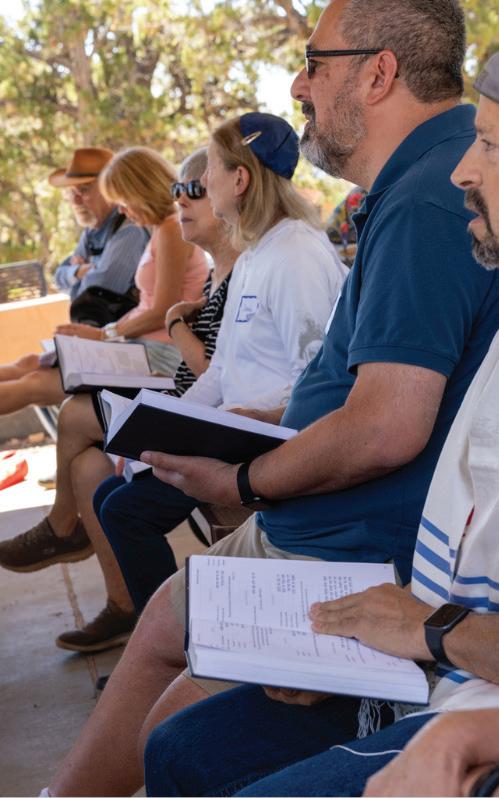

The website, which was created in hopes of connecting the community, began with fewer than 100 “microsites,” or pages belonging to local Jewish organizations, that list events, blog posts and provide details for anyone interested in learning more about them, as well as hosting an interactive calendar.
Since the launch, more than 50 organizations joined JewishPhoenix, for a total of 158 currently. As community leaders have increased their use of the site, many say they have seen its advantages.
Temple Solel’s Purim Carnival garnered “quite the buzz” this spring, thanks in part to people discovering it through JewishPhoenix, according to Mason Marks, Temple Solel’s engagement communications specialist.
Marks has also posted on the site for Moishe House, which has increased event attendance. At a Hillel at Arizona State University happy hour, he met Sophie Rubin and told her of an upcoming event, but she already knew about it from browsing JewishPhoenix.
“I typically check the site once a month to plan out what events I want to attend,” Rubin said. “Any time one of my friends mentions they are looking to meet new people or get more involved in the community, my first reaction is to send them to the JewishPhoenix website.” She credits the site with helping her meet some “amazing friends” at events she found there.
“JewishPhoenix helps a lot as we try to get a few new faces to each event to keep it fresh, and it helps new members of the community make friends,” Marks agreed before adding that he has also used it to find out what’s going on in the community.
Asmall group of Arizona Jews gathered on the south rim of the Grand Canyon one Shabbat morning in early July to reignite a unique pre-pandemic tradition. Before COVID-19 shut her down, Rabbi Nina Perlmutter, a canyon devotee, celebrated Shabbat once every spring at Shoshone Point, one of the South Rim’s most spectacular and least visited lookout spots. After a three-year pause, she and her traveling ark and Torah were back on July 8.
Perlmutter is the rabbi emerita of Congregation Lev Shalom in Flagstaff and the designated Jewish contact for the Grand Canyon’s south rim.
The day warmed up quickly but worshippers sat at open picnic tables sheltered from the direct sun by a small roof. A gentle breeze ruffled a few pages of the Reform Siddurim, but otherwise, the morning was peaceful and calm, just what the participants were hoping for.
“As my Hopi friends often observe, both of our traditions value how we come from dry, open, wilderness places and need to respect the earth and the places where our ancestors found connection with the Source,” Perlmutter said.
In years past, attendees were almost exclusively from Lev Shalom, but this year they were joined by people from Chino Valley, Prescott, Sedona, Valle and the Grand Canyon itself.
In a bit of kismet, Lev Shalom had set up its first table at Flagstaff’s Pride in the Pines parade a couple of weeks earlier. That’s where Perlmutter and others met Samantha Troi, who is an interpretive trainer for Xanterra, SEE SHABBAT, PAGE 3

Local professionals share what’s happening in the catering industry. See page 17.

she “loves using.”
“The ability to share information about JFL, news about our organization and strong storytelling pieces through JewishPhoenix helps us educate the community about our resources and extends our reach within the community,” she said.
The success of JewishPhoenix depends on members of the Jewish community continuing to find it useful and to that end, Rich Solomon, director of JewishPhoenix, regularly reaches out to the leaders of Jewish organizations to get their feedback on what’s working and what’s not.
“It’s not enough to craft a website that caters to the needs of both organizations and visitors. To ensure a steady influx of interested users, we continually improve it so that it’s not only useful, but truly exceptional for all who engage with it,” he said.
In response to community feedback, the JewishPhoenix team has added a few notable features in its first year.
Last fall, a weekly newsletter was created to keep people apprised of upcoming events and new blog posts. The newsletter has much higher-than-average open and click-through rates, metrics used to show the percentage of individuals viewing and clicking on an item featured in the newsletter. For example, according to MailChimp, an email marketing platform, the average open rate for social networks and online communities is 21.06% and click-through rate is 3.32%. JewishPhoenix’s open rate is 44.60% and click-through rate is 16.40%.
Nicole Myden, owner of PR Concierge which helps small business owners get press coverage, uses the newsletter to keep track of what’s happening in the community.
SHABBAT
CONTINUED FROM PAGE 1
the privately owned park and resort management c ompany that provides lodging and tourism services inside the Grand Canyon. Troi teaches Xanterra’s guides and bus drivers how to communicate about the canyon. On her own time, she started the Grand Canyon Pride Club, went to Pride in the Pines and found Lev Shalom.
Troi enthusiastically accepted the rabbi’s invitation to join the Saturday morning service. She even brought another Jewish employee along.
“After two years at the canyon, this was my first Jewish connection to this sacred place that I’m already so connected to, and being able to share that with everyone today has been absolutely profound,” Troi said.
Perlmutter also recognizes the canyon as a profoundly sacred place. While welcoming “the holy space of Shabbat,” Perlmutter invited everyone to take a breath and look around and remember all the paths to gratitude that Judaism teaches.
“It’s amazing that we’re part of an interconnected system,” she said.
Gratitude and Jewish spirituality are very much part of that interconnected system for
“The JewishPhoenix team does an incredible job showcasing events and incredible stories of people in the community making a difference. I appreciate the opportunity to be kept in the loop on all the many things I can get involved in,” she said.
More recently, a monthly newsletter exclusively for organizations already on the site was introduced to inform leaders of which events and posts receive the most traffic and which organizations are the most visited in any given month. This service is intended to provide organizations with ideas about how to present their own content to appeal to the public.
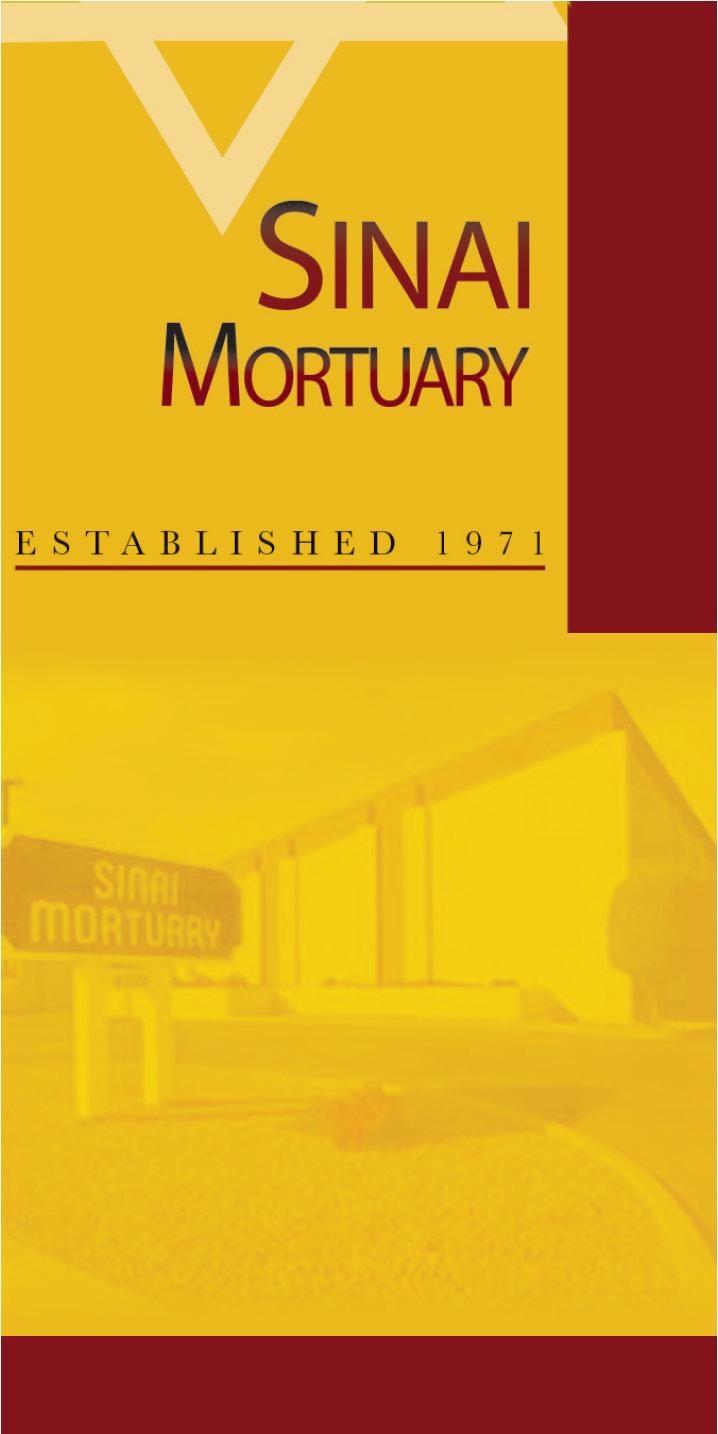
In March, a monthly community calendar appeared on the homepage that allows users to see how many community events are listed on any given day. One need only click on a day of the week to view each event and all the pertinent details. The traditional calendar page image sits atop the pre-existing interactive version.
“We got a sense from the community that people wanted a literal calendar format for viewing events. After careful planning and consideration, we were finally able to bring this feature to the site and it has been a big hit,” said Leah Cresswell, JewishPhoenix’s digital coordinator.
Other changes have been more subtle. After some organizations hesitated to use the website for private events, JewishPhoenix added a workaround option. Thus, organizations can still publicize invite-only events to their members, and the address can be marked as a private location so it won’t be visible to the public, with the added benefit that the community can see who is doing what on any given day thus avoiding scheduling conflicts.
One addition to the website, that
is also a community service, is the job board. It offers any organization with a microsite on JewishPhoenix the ability to list information about employment opportunities for free. It is highlighted on the homepage and has become one of the most visited sections on the site.
The original idea for a community website came about in 2018, when the board of the Jewish Federation of Greater Phoenix first talked about creating a comprehensive listing of what was going on in the Jewish community.
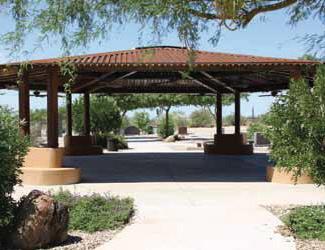
Alan Zeichick, who chaired the technology task force, wanted to make something that the Jewish community could visit and “find everything they want, love it and tell their friends,” he said.
A year after its creation, JewishPhoenix has met many of its goals in connecting the community, but the work never ends. Solomon said he intends “to continually refine and enhance the product and user experience” and Cresswell said she “loves feedback from community members and welcomes recommendations for how to improve the site.”
Many users have sent positive notes about the website to Solomon. He’s ready for the positive feedback as well as constructive input on areas to improve or additions to add, but truly appreciates when he reads a response like a recent one from Funke, who said she is “so grateful for this treasure of a resource.” JN
For more information, visit JewishPhoenix.com.
Jewish News is published by the Jewish Community Foundation of Greater Phoenix, a component of the Center for Jewish Philanthropy of Greater Phoenix. Shannon Levitt is a member of the JewishPhoenix.com team and Rich Solomon is the general manager of the Jewish News.

Perlmutter, who first fell in love with the canyon when she made a point of visiting it while driving from New York to Tempe to attend graduate school at Arizona State University in 1970.
“I thought I’d stay two years,” but ended up staying for life after she “fell in love with the land,” she said.
She and her husband, Tom Brodersen, a native Arizonan and their two cats, Mazel and Tovah, live on a rural plot of land north of Prescott, complete with a large vegetable garden, fruit trees and several solar-powered buildings, including their home. She is committed to using her solar oven whenever possible and the license plate on her Prius reads “ECORABBI.”
During the service, Perlmutter explained Maimonides’ eight levels of tzedakah, expanding on how each level builds on the one below it. When expounding on Parshah Pinchas, the morning’s Torah portion, Perlmutter focused on speaking up in the face of unfairness, just as Zelophehad’s daughters did about the injustice they faced in claiming their inheritance.
After the service, she spoke about certain
injustices people living near the canyon and the canyon itself faced, such as uranium mining, and ways people can speak up and give back, specifically mentioning Grand Canyon Trust and Grand Canyon Conservancy.
Several Lev Shalom congregants were familiar with their rabbi’s passion for this work and said it was part of why they came.
With a few exceptions, the service itself was fairly typical of Saturday mornings in their synagogue said David Miggins, a Lev Shalom board member. But the canyon, and the rabbi’s connection to it, made the morning incredibly special.
“Being here with my son, who is on the autism spectrum, is wonderful. It’s been very empowering for him to do this,” he said.
It was the first time for Susan Nickerson, who found the experience “very nourishing. When you’re in the canyon, you feel closer to God,” she said.
The two stayed behind while most attendees stepped onto Shoshone Point for a better view. From the edge, one
SHABBAT
CONTINUED FROM PAGE 3
can see in the distance a glimpse of the Colorado River and the Skeleton Point switchbacks on the South Kaibab Trail. With a bit of imagination, one can even picture the location of Phantom Ranch, an oasis on the canyon’s floor.
Alan Gilbert, who is cautious of heights, said that he and his wife Barbara are regulars on Saturday mornings at the Flagstaff synagogue.
“This was a very good service, very creative. We got lucky with the good weather,” he said.
“It was a magical opportunity,” added Barbara.
Sandy Shaw, who heads Lev Shalom’s ritual committee, added, “Shoshone Point is the canyon’s best-kept secret.”
The entrance to the area is not well marked from the road and opens onto a small dirt parking lot. To get to the point, people have to park and walk about
a mile in, which keeps most people who just want a canyon view away. Several spots are easier to pull in and look from. Indeed, during the service, only a few tourists took the trouble to walk all the way in and the congregants mostly had it to themselves.
Lev Shalom lay leader Leah Mundell and her two teenagers, Madeline and Gabriel, have been coming to the annual Shabbat service since the kids were little.
“It’s a combination of our two loves,” Mundell said. She chanted the Torah portion on Saturday.
The night before, they had camped nearby at Mather Campground and hosted a Shabbat meal with Perlmutter, Brodersen and several others.
On the other hand, the experience was completely new for Loren Larrieu, a senior at Northern Arizona University.
“I loved it! The teaching and the place were amazing,” she said.
Al Steinberg and Jeff Plotkin, both
from Prescott, were also first timers.
“I was apprehensive about the heat, but it worked out. I would love to do this on the North Rim one day,” Plotkin said.
“This was my first time but definitely not the last,” said Steinberg. He normally would be at the Prescott farmer’s market on Saturday but “this was absolutely worth missing a day for,” he said.
Michael Scott, a Christian who lives 25 miles from the canyon in Valle, also came for the first time. He first got to know Perlmutter through a course she teaches on meditation, in addition to the charitable work his church does in partnership with Lev Shalom.
Susan Axelrod, who is relatively new to Flagstaff, and Lev Shalom, found it “an unusual and profound thing to have Shabbat service at the Grand Canyon.”
She also feels very connected to the earth and being from suburban New York, she appreciates the setting.
“You don’t get a chance to do this in
New York,” she said.
This year was especially poignant for Perlmutter because the man who first introduced her to Shoshone recently passed away. When the time in the service came for people to say the names of the deceased they wanted to remember, she held up his photo and spoke his name. People brought their own lunches, shared desserts and enjoyed the fellowship. They milled about and sought last looks of the canyon before heading the mile back to their cars.
Now that the tradition has been restarted, people are anxious to see it continue. That’s fine with Perlmutter, whose one big personal rule is never to live more than a two-hour drive from the Grand Canyon. JN
For more information, visit levshalomaz.org. To learn more about the Grand Canyon Trust, visit grandcanyontrust.org and the Grand Canyon Conservancy, visit grandcanyon.org.
Tamim Academy Chandler (TAC) is now accepting student applications for kindergarten through second grade for the 2023-24 school year. The school, an outgrowth of Chandler Jewish Preschool, recently partnered with Tamim Academy, a national program that works with local Chabads to create and implement Jewish day schools throughout the country.
“There have always been families at the school who have wanted it to expand to a fuller elementary school. It’s a lovely environment here and people have been asking about the possibility for years,” said Shoshi Shachar, TAC’s lead general studies teacher.
A few years ago, the school added a kindergarten. Last year, it added a firstgrade class and decided to partner with Tamim, which will provide a curriculum, professional development and technical support.
“There’s nothing else like this in the East Valley, a day school geared towards kids at every level of observance with an equal focus on Judaic and secular studies,” said Rabbi Mendy Deitsch, director of Chabad of the East Valley.
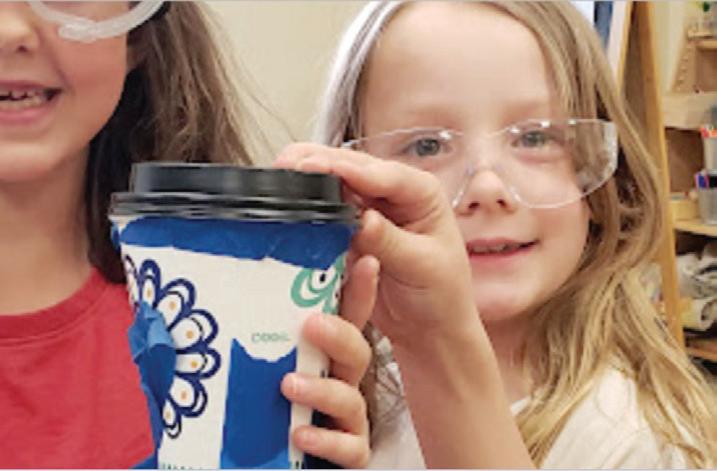
“We didn’t want to do it at first because an elementary school is a huge financial, emotional and staffing burden but with so many parents begging, it was hard to say no. It’s important to invest our energy into education,” Deitsch told Jewish News.
Currently, he is working with various student tuition organizations in the state to help finance the school and hopes that a combination of tuition and fundraising will fill in any funding gaps.
Shachar moved to the East Valley from Washington, D.C. roughly 10 years ago, where she had taught in several charter elementary schools. She would often find herself writing down ways to improve curriculum and teaching methods. After she moved to Arizona and enrolled her daughter in Chandler Jewish Preschool, she soon found a teaching job there and has always enjoyed its child-centered approach and family feeling. She was one of the parents encouraging Deitsch to expand.
Shachar is looking forward to incorporating the Tamim curriculum, which she praises as “academically rigorous and at the same time so child friendly. Play is built into the education and the academics are so well linked to the Jewish content.”
The name Tamim is pulled from Tomchei Temimim, the first formal Yeshiva system of the Chabad-Lubavitch movement, where each student was called “tamim” — meaning pure, perfect or complete.
According to Tamim’s website, the message embodied in the name is “quality Jewish education begins with the assumption that each child is inherently holy and good.”
The structure of the elementary school will bring two grade levels together, similar to the Montessori system. For example, first and second graders will be in the same classroom most of the day. Each year, the school will add a new grade to maintain school culture organically through upward growth rather than bringing in older students all at once and teaching them a completely new system.
The kindergarten will be the only standalone grade.
This system makes sense to Shachar, who likes teaching a wide range of ages and abilities. Last year, the kindergartners combined with the first grade and “we had kindergartners doing first-grade level work. Some of the younger kids saw what the older kids were doing and asked to join because they were ready,” she said.
Conversely, older students who need more of a review will have it without feeling singled out.
“It feels much more organic to have a lot of different levels in the classroom,” she said.
Deitsch and Shachar both agree that this will be a good fit for the community, which wants a combination of Judaic learning and rigorous secular academics without having to drive to Phoenix.
One big attraction is that the school will provide Hebrew language immersion. In addition to formal Hebrew lessons, the full-time teaching assistant is Israeli and will speak only in Hebrew. Therefore, even when the kids are not having a formal Hebrew class, they are always surrounded by the language on a conversational level. Shachar and Shternie Perline, who teaches Jewish studies, are both fluent in Hebrew.
“That’s a big draw for a lot of our families because the kids who are coming to our school aren’t going to Sunday school,” Shachar said.
A Jewish Education Project report released in April showed that enrollment of U.S. children in supplemental Hebrew schools attached to synagogues fell by at least 45% between 2006 and 2020, but
“THERE’S NOTHING ELSE LIKE THIS IN THE EAST VALLEY, A DAY SCHOOL GEARED TOWARDS KIDS AT EVERY LEVEL OF OBSERVANCE WITH AN EQUAL FOCUS ON JUDAIC AND SECULAR STUDIES.”
RABBI MENDY DEITSCHJewish day school enrollment increased by about the same amount.
Chabad-operated schools account for much of that growth. Since 2006, the study says Chabad’s market share in terms of enrollment has grown from 4% to 10%, and the number of schools from 13% to 21%.
None of this surprises Shachar.
“Chabad is in the community and they are able to draw non-Orthodox families who want some form of Judaism in their lives. Chabad knows how to do that in a welcoming way,” she said. JN
This fall, when Zack Okun starts his college career at Barrett, The Honors College at Arizona State University, he’ll have just enough course credits to make him a second-semester sophomore — even though he graduated from high school last spring.

Okun, a member of Temple Kol Ami and high-achieving senior at Desert Mountain High School in Scottsdale, recently won two large and prestigious scholarships, and a host of smaller ones, for his scholastic aptitude and hard work this year. His dad, Chad Okun, is “blown away” by his son’s accomplishments, but Zack, who “thrives on involvement,” just feels better when he has a pile of tasks in front of him.
“I do my best work when I have a lot of goals,” he told Jewish News.
One of those early goals was to share his love of STEM (science, technology, engineering and math) education. In 2019, he started STEMducate, a nonprofit for STEM education that has reached more than 10,000 kids across the nation and the world. He began by making simple kits filled with materials for STEM projects and giving them to local elementary students.
Once the COVID-19 pandemic set in and people were spending much of their time online, he realized he could expand by creating digital curricula and providing virtual resources. As it grew, he enlisted several of his friends to help. They split up fundraising, marketing, communication and other responsibilities. With its nonprofit status, STEMducate also qualified for Google advertising grants, which allowed them to grow exponentially. Every year, Okun’s team hosts the STEM Olympiad, where students can compete in groups using the skills they have learned to create a range of projects related to STEM.
“I found a passion for STEM education when I was young by doing robotics and science. I put the education to use in the classroom and seeing a real-world application is exciting. Being able to share that now and helping other people find their passion is inspiring,” he said.
That passion is paying off for Okun, literally. He is one of 20 Arizona students to win the Flinn Scholarship, which covers tuition, fees, housing and meals at one of Arizona’s public universities, plus study abroad, making it worth approximately $130,000.
More than 1,000 students apply for the state’s most competitive and prestigious award.
“These 20 students, from 20 different high schools, show that incredibly highachieving students are found throughout Arizona,” said Anne Lassen, Flinn Foundation vice president, scholarship and education initiatives.
While that was the most lucrative scholarship Okun received this year, he was also one of 150 — and only three Arizonans — chosen out of 91,000 applicants for another prestigious award. The CocaCola Scholars Program scholarship, which provides $20,000 and entrance to “a diverse community of over 6,600 fellow change makers who are creating a bettershared future,” according to its website, offers him access to a national network of equally hard-working individuals.
“Both scholarships are incredibly exciting to me. The Flinn award brings a great alumni network in the state and the CocaCola one means I can connect to students across the country,” Okun said.
He was advised by his counselors to apply for as many scholarships as he could and expect to get one or maybe two. But he’s done better than that, and while not as remunerative as the Flinn and Coca-Cola scholarships, each award is meaningful.
He takes some ribbing from a few of his high-achieving friends in his robotics club over his success. “I was in robotics when I got a couple calls telling me I won a scholarship and my friends said, ‘Save some for the rest of us!’ I appreciate the acknowledgement but I want to spread the wealth, too,” he said.
Okun’s life isn’t all just hard work and goal setting. He also likes to have fun hanging out with his friends, watching television and cooking for his family. During the pandemic, he started experimenting with recipes, trying to imitate his favorite restaurant dishes. Sushi is a particular favorite.
Since his bar mitzvah, Zack hasn’t been that involved with synagogue life but is a member of his high school’s Jewish student union. He intends to join Hillel next year and has already signed up for the student newsletter.


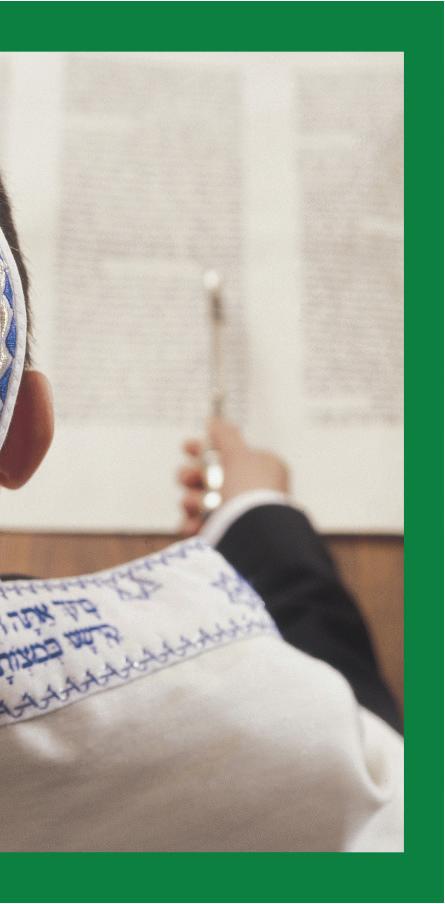

Once he gets to Barrett, he’ll join his older brother Jake — another high achiever and award winner — as a mechanical and robotics engineering major.
“My brother and I are very close. Going to ASU was a no brainer and now we get to keep working together,” he said. JN
“BOTH SCHOLARSHIPS ARE INCREDIBLY EXCITING TO ME. THE FLINN AWARD BRINGS A GREAT ALUMNI NETWORK IN THE STATE AND THE COCA-COLA ONE MEANS I CAN CONNECT TO STUDENTS ACROSS THE COUNTRY."
ZACK OKUN
Shephard, who belongs to Temple Chai in Phoenix, referred to himself as a “Joshgo-to-temple-a-few-times-a-year” and said his friends are much more involved in the Jewish community.
schools,” she said.
Congregation Or Tzion Rabbi Andy Green learned about the incident from Feinberg and a few other members of the synagogue, which is located about a mile from the school. Green reached out to anyone directly affected by the incident.
“I didn’t even consider contacting ADL. It didn’t enter my mind. I would have called Paul (Rockower) if I knew about JCRC.”
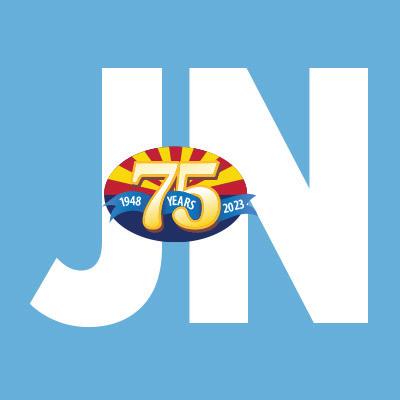
But he doesn’t regret calling Barry, who he thinks did a good job with the story. Still, he wonders if there will be ramifications for going public.
When Temple Beth Sholom of the East Valley (TBS-EV) in Chandler opens its doors to the public on Sunday, Aug. 6, to trumpet its religious school, youth programs, adult groups and High Holiday services, newlyhired Rabbi Tracee Rosen will be the star of the show.
“It starts creeping into your head that someone might target you after being on the news. But I don’t want to come off as complaining, either. I don’t want to sound like I’m the old man at the deli sending back the soup because it’s too cold,” he said.
“Between the ‘Day of Hate’ mishegoss and all the other things happening in our world, this is deeply unsettling,” he told Jewish News.
“So much of offering support is letting vulnerable people know they are not alone,” he said.
This is the focus for ADL and JCRC, too.
“We have to play the long game. We know things like this will happen but how we learn and move forward is important,” Kader said. JN
Nikola Motor Co. Phoenix, AZ is seeking the following engineering talent:
TBS-EV has been without a full-time rabbi since Rabbi Herschel “Brodie” Aberson left last year in June. Since then, the synagogue has relied on local rabbis to fill in until the right religious leader could be found. Rosen was one of those rabbis who stepped up to lead services once or twice a month.
Feinberg got involved because “our Jewish children should feel safe in their
For more information on the ADL’s “No Place for Hate” program, visit adl.org/no-place-hate.
In the summer of 2021, she retired from the pulpit to spend more time with her family after leading Beth Emeth Congregation, a Conservative congregation located in Sun City West, through the first year of the COVID-19 pandemic.
“This year of seclusion has given us all a lot of time to think about our priorities,” she told Jewish News two years ago. “I looked at how my time was being spent and what I had energy for and what I didn’t have energy for.”
However, getting to know the
“unique strengths and warmth of the congregation” at TBS-EV drew her back to the pulpit. One thing she really liked about the people she met there was that so many congregants had a strong interest in science fiction, engineering and all things technological, something she shares.
“We seemed simpatico in many ways,” she said. “This was one of those times when I felt there was a gentle hand guiding me in a certain direction.”
She missed the long-lasting relationships formed between a congregation and its rabbi, as well. For the last couple of years, Rosen served as a chaplain for Jewish Family & Children’s Service West Valley
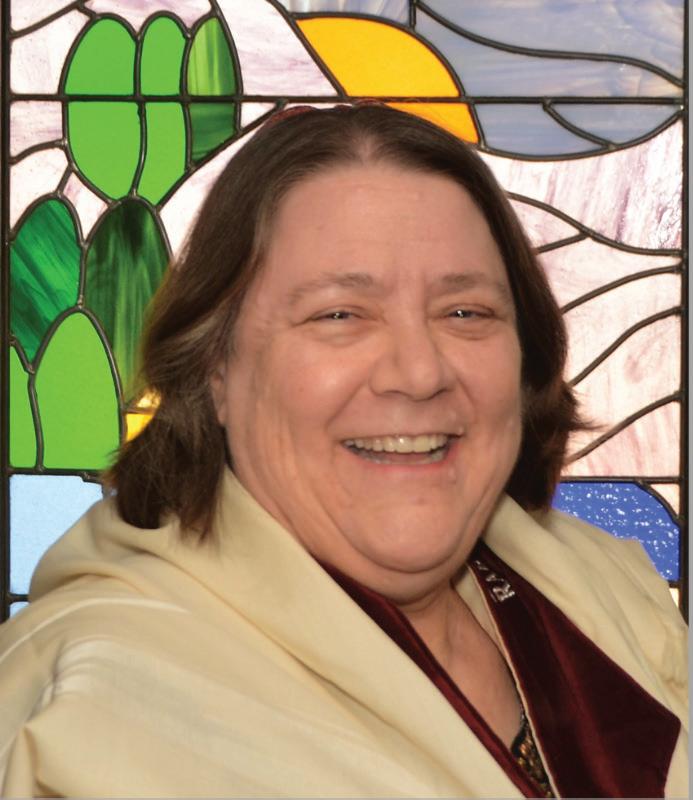
Lead Powertrain Controls Engineer – Develop embedded ctrl softw, support vehicle-dev activities, manage software release; software dev using MATLAB/ Simulin, code generation. Req’s Master’s degree or higher in Mech Eng, Electr Eng, Computer Eng or related eng discipline, w/12 months of exp. Travel req’d Senior Component Design Release Engineer – Own component design, dev, packaging, testing, calibration, releasing; manage DFMEA, DVRR, working w CAN/CAN-FD protocols. Req's Master’s Degree or higher in Elect Engineering, Computer eng, Mech Eng or closely related discipline, w/24 months of component dev experience. Travel req’d
Healthcare Center, and though she enjoyed the work she missed “an ongoing connection with people.”
Lead Digital Sculptor – Create 3D surface design proposals, develop surfaces (CAD) form 2D sketches, build clay/hard model development; develop 3D mockup models; develop interior/exterior design. Req’s bachelor’s Degree or higher in Mech Eng, Automotive Design, Industrial Design or closely related, or the foreign educational equivalent; 60/months of exp.
Another big plus for Rosen is that her teenage son, who will attend a charter school in Gilbert in the fall, feels at home at TBS-EV.
“He had a good vibe here and that was a good sign because he’s a good intuitive judge of character,” she said.
After talking it over with her family, she threw her hat in the ring in February to become TBS-EV’s permanent rabbi.
Lead ADAS Test V&V Engineer – Develop advanced safety and comfort features; ADAS validation activities, lead vehicle integration reviews, develop and execute testing and validation via DVP&Rs. Req’s master’s Degree or higher in Automotive Eng, Elect Eng, Mech Eng or closely related discipline, or the foreign educational equivalent; 24/months of exp. Travel req’d
“We are very happy she applied,” said Dennis Aust, TBS-EV board president. “Over the last year we’ve really gotten to know and appreciate her style. She’s a great fit for our community.”
a world of difference.”
Rosen also loves teaching and recently wound down a virtual weekly Torah study class. As she gets more familiar with her congregation, she intends to invite interested members into the pre-existing class and reinitiate it.
Lead Software Engineer – Develop, integrate, and maintain core web apps; design and implement web-based softw, full-stack development of SDLC, agile project management, Ruby, Python, react, Php, Angular, Javascript. Req’s Master of Science Degree or higher in Information System Management, Computer Science, IT, IS or closely related discipline.
“I really enjoy being able to connect with new people, and I love watching them get connected to Jewish ideas,” she said.
“We have the advantage of having seen Rabbi Rosen in action and the congregation is very excited to have her energy,” said Michele Millman, TBS-EV religious school director and office manager.
Before she enrolled in rabbinical school at the University of Judaism (now American Jewish University), Rosen had a career in banking and sits on the board of the Joint Retirement Board for Conservative Judaism and also serves on the Rabbinical Assembly Committee on Jewish Law and Standards, which sets the halachic policy for the Conservative movement.
Senior Lead Power Electronics Systems Engineer – Develop system and component level schematics, create electrical system specs for HV, experience in high power, high frquency systems deisgn, DFMEA, MATLAB, SIMPLORER. Req’s Bachelor’s Degree in Electronic Eng, Electrical Eng or closely related discipline or foreign academic equivalent. 60/months of exp.
Senior Mechanical Design Engineer – Cradle-to-cradle responsibility, lead progression of design maturity, generate and review 2D, 3D and analytical models, troubleshoot and resolve all validation issues, exp with at least one of chassis aggregates like structures, suspension, dynamics, etc. Req’s Master’s Degree or higher in Automotive Eng, mech Eng, Mech Eng Technology or related eng discipline. 24/ months of work exp. Travel req’d.
Rosen has always valued the collegiality and friendship among the Greater Phoenix rabbis and during her brief retirement, she stayed connected with the Jewish community and its leaders, especially Congregation Or Tzion Rabbi Andy Green, whom she’s known for years, and Beth El Congregation Rabbi Nitzan Stein Kokin, with whom she’s developed “a lovely friendship.”
Rosen’s wife grew up in Beth El and found it pleasant to attend services “on another rabbi’s turf as just another Jew in the pew,” she joked.
Fortunately, TBS-EV sees Rosen’s leadership in these national organizations as “a point of pride rather than a distraction,” she said.
As a gay rabbi, it was also important to have the synagogue’s “unequivocal support in terms of their position on egalitarianism and LGBTQ+ participation and inclusion,” she said. Though she believes any pushback on LGBTQ+ people is politically motivated and “isn’t reflective of how people feel when they know people who are gay and transgender,” she acknowledged that the visibility of having a lesbian rabbi “makes
Functional Leader, Vehicle Engineering Simulation & Devel. - Lead team of engineers to analyze vehicle systems for durability and crash safety; de ne long-term eng goals of vehicle durability, exp in durability and crash safety analysis of batteries, at cell level, pack level and system level. Req’s Master’s Degree or higher in Mechanical eng or closely related degree or foreign education equivalent thereof. 60/months of work exp. Travel req’d.
The three Conservative congregations often join together for lesser-attended services, such as the second day of major holidays.
As she gets to know more of her congregants and becomes “part of this vibrant and welcoming part of the East Valley Jewish scene,” she happily reflected that the last two years “feel like a wonderfully rejuvenating extended sabbatical and now I’m all energized and ready to continue to serve the Jewish people,” she said. JN
SEND TECHNICAL RESUME TO ATTN: HR, NIKOLA MOTOR CO., 4141 E BROADWAY RD PHOENIX, AZ 85040 OR EMAIL HR@NIKOLAMOTOR.COM
For more information, visit tbsev.org.
“WE SEEMED SIMPATICO IN MANY WAYS. THIS WAS ONE OF THOSE TIMES WHEN I FELT THERE WAS A GENTLE HAND GUIDING ME IN A CERTAIN DIRECTION.”
RABBI TRACEE ROSEN
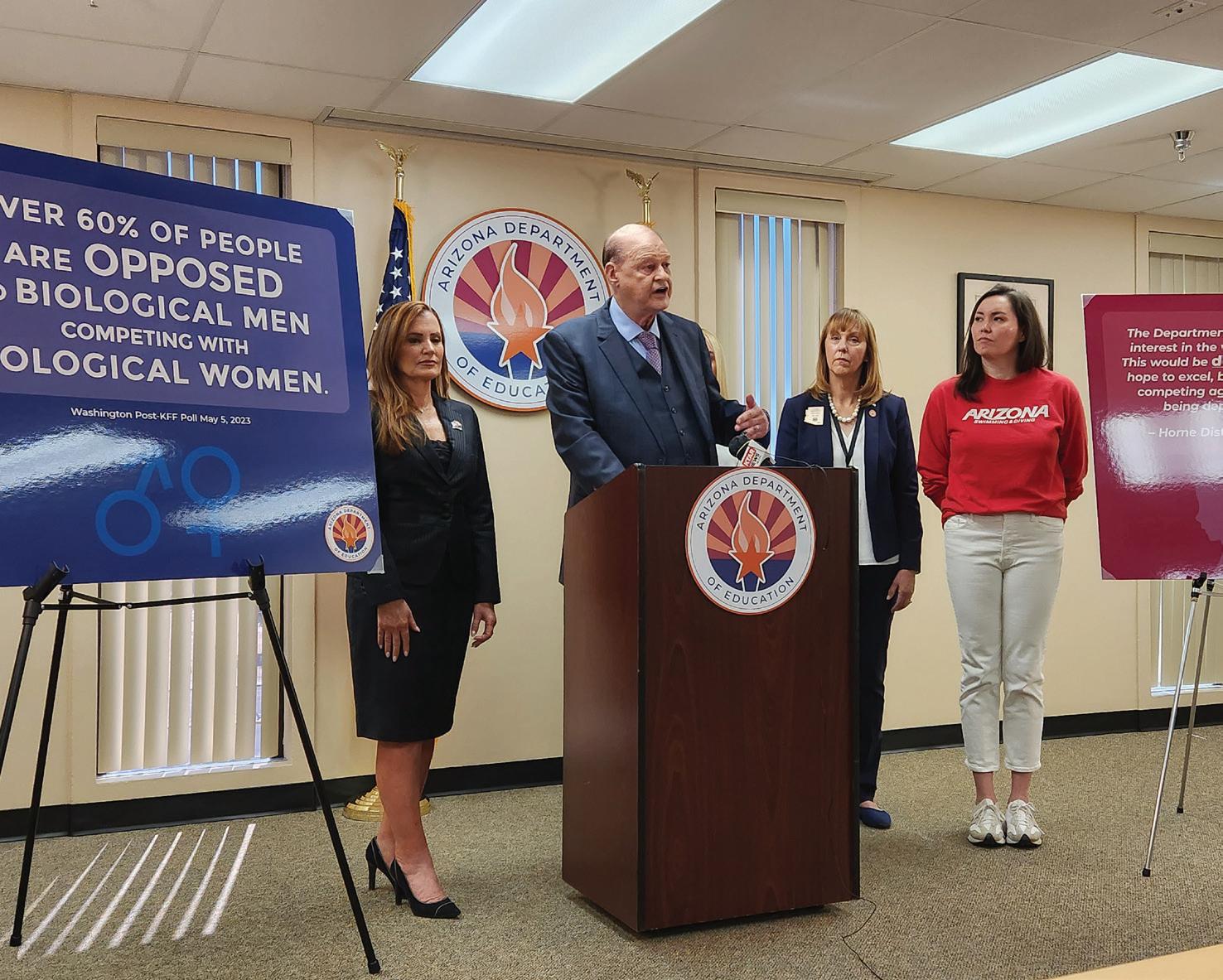 SHANNON LEVITT | STAFF WRITER
SHANNON LEVITT | STAFF WRITER



On July 20 in Tucson, U.S. District Court Judge Jennifer Zipps blocked enforcement of a 2022 Arizona law barring transgender girls from playing on girls’ sports teams.
The law bars students whose “biological sex” at birth was male from participating in girls’ sports in public or charter schools and at private schools that compete with those schools.
In April, parents of two transgender girls, whose names are concealed in court documents out of fear for their safety, filed suit against the law. One girl, 15, attends a private school in Tucson and the other, 11, is a student at Kyrene Aprende Middle School in Chandler, a public school.
The federal judge’s order only applies to the two girls as their lawsuit moves forward. Zipps upheld Arizona Interscholastic Association’s policy which, on a case-bycase basis, has allowed students to participate in sports based on the gender with which they identify. There have only been 16 transgender students who have requested to compete in a state with roughly 170,000 high school athletes.
There are Jewish representatives on both sides of the lawsuit.
Arizona Superintendent of Public Instruction Tom Horne, a member of Temple Solel in Paradise Valley, was named as the lone defendant in the case. Arizona Senate President Warren Petersen, R-Gilbert and House Speaker Ben Toma, R-Glendale have joined Horne in defending the law, something Attorney General Kris Mayes has refused to do.
“We will appeal this ruling,” Horne said in a statement he emailed to Jewish News. “This will ultimately be decided by the United States Supreme Court, and they will rule in our favor.”
National Center for Lesbian Rights attorney Rachel Berg, a lead lawyer for the plaintiffs, was pleased with the judge’s order.
“We got an excellent ruling from Judge Zipps, who agreed with us that the Arizona law likely violates the
Equal Protection Clause of the U.S. Constitution and Title IX and we will be seeking a permanent injunction on those theories,” Berg told Jewish News.
Berg is Jewish and said growing up with Jewish teachings about social justice is one reason she decided to practice civil rights law.
“Everybody knows what it feels like to be excluded from something when you’re a child, and no child should have to be excluded based on their identity. I think this resonates strongly for people with a Jewish upbringing,” she added.
Horne’s argument is that it is unfair to allow transgender girls to compete against cisgender girls, or girls whose gender identity corresponds to their sex assigned at birth. He said he presented peer-reviewed studies showing “prepubescent boys” — his language for the transgender girls — have a physical advantage over girls in sports.
Zipp rejected that argument, pointing to the evidence presented by the plaintiffs that any athletic differences before puberty “are minimal or nonexistent” and that the height, weight and strength of transgender girls overlap with other girls.
The judge also pointed out that both girls already have been playing sports.
“For transgender girls who are already playing on girls’ teams, a law that requires them to be excluded from continued participation on girls’ teams would have a further negative impact on their health and well-being, causing them to feel isolated, rejected and stigmatized, and thereby putting them at high risk for severe depression and/or anxiety.’’

“The only expert presented by the plaintiffs was a medical doctor who makes his money doing sex transition surgeries on children and who has exactly zero peer-reviewed studies to support his opinion,” Horne claimed.
Horne has called himself an “ally” of the LGBTQ+ community and said the lawsuit and the sports debate “is not an LGBT issue.”
“I feel a very deep sympathy for people who feel they were born in the wrong body, but I also believe that biological men should not compete against females,” Horne told the Arizona Mirror in a May interview.
However, he has been criticized by the Arizona Trans Youth & Parent Organization for stripping away any mention of queer or trans issues or resources from the Department of Education’s website when he came into office in 2023. JN
“EVERYBODY KNOWS WHAT IT FEELS LIKE TO BE EXCLUDED FROM SOMETHING WHEN YOU’RE A CHILD, AND NO CHILD SHOULD HAVE TO BE EXCLUDED BASED ON THEIR IDENTITY."
RACHEL BERG
Jose Picasso was ecstatic in May to learn that he’d been hired for a job in guest services for the Arizona Diamondbacks. He’d applied before, but due to a conviction for disorderly conduct seven years ago, he’d been turned down.
“Disorderly conduct is a common charge in the state because it fits a wide variety of circumstances with not a lot of evidence,” according to R&R Law Group, a firm with offices throughout Arizona. However, Picasso didn’t seek out Community Legal Services (CLS) to make a point about the justice system. He just needed a job with some stability and better pay. For that, he needed to get that black mark of a felony reduced to a misdemeanor but he didn’t know how.
Incorporated in 1952, CLS is a nonprofit Arizona law firm that provides legal aid in civil court to people whose incomes are below 125% of the federal poverty level. On Aug. 17, it will hold a free clinic at Mesquite Library in Phoenix.
Though Picasso’s case may have started in the criminal court, the paperwork process to reduce the charge is not part of that system. In fact, Nina Targovnik, the CLS lawyer assisting Picasso, works primarily in employment law. Besides getting his charge reduced to a misdemeanor, she also helped him obtain a “set aside,” which means that though the conviction still exists on his record, the penalties have been released. It is not available to anyone who has committed what Arizona considers a “dangerous offense.”
“A set aside represents the justice system patting you on the back for not getting in more trouble. Additionally, some housing and employment places like to see that you have taken the time and trouble to get it,” Targovnik explained.

The justice system can be very intimidating and she and her colleagues at CLS help guide people through it, she said.
Picasso is certainly grateful for that guidance.
“Someone told me a while ago it would be impossible to get the misdemeanor, so I didn’t expect much, but she (Targovnik) was great and she really tried. I really appreciate that,” he told Jewish News.
A Phoenix native, Targovnik also has a master’s degree from Arizona State University in special education and taught for a time. However, the problems she
witnessed in the individualized education plan (IEP) system made her want to be an advocate.
“When you’re a special ed teacher and you say something, nobody listens to you. When you’re a lawyer and you say the exact same thing, people do listen,” she said.
She’s spent most of her time over the past three years working with people struggling to untangle issues associated with the Pandemic Unemployment Assistance (PUA), which was instated due to COVID-19.
A lot of problems were caused because PUA wasn’t folded into Arizona’s unemployment computer program, which “is about 50 years out of date,” she said. Some people were instructed to sign up for both programs and now face fraud allegations, while others who qualified only for PUA were denied outright. The Department of Economic Security (DES) handles every issue individually, which has led to Targovnik’s clients going through multiple hearings instead of being heard all at once. For some, that means payments they are owed are delayed by up to two years or more. She knows clients who have become homeless while they wait.
“I’m just trying to untangle all of it but there are so many hurdles, and now there are fewer judges to deal with it, and it can be really frustrating. But it’s important work — we’re fighting the good fight,” she said.
To cope with the stress of it all she draws some hard lines for her personal life such as not answering emails or calls after 5 p.m. and always observing Shabbat.
“Just having a day where I don’t work and I can read, rest and forget the outside world — it’s so important and so helpful,” she said.
Targovnik belongs to the New Shul in Scottsdale, is on the board of Arizona Kosher Pantry and is the co-chair of the Arizona Jewish Lawyers Association. The concept of tikkun olam is at the core of her work.

“Helping the disenfranchised have a voice is important,” she said.
To illustrate, she recounted the case of a former Uber driver who had to take time off due to complications from asthma in February of 2020, right before the pandemic began. He applied for PUA but was denied, though he was
over 60 and at high risk of infection. He initially went through the system alone and, because he’s not a native English speaker, he had trouble understanding the judge’s questions at his initial hearing. Unfortunately, this was also a time when cases were being rushed and some people fell through the cracks.
Targovnik helped him appeal that initial decision and recently found out that she won and her client would finally get the unemployment assistance he should have had all along.
“You can really help people here and make a difference in their lives once they understand what’s going on,” she said.
Jessica Fidler, a paralegal in CLS’ health and economic security division, also sees her work through the lens of tikkun olam.
Recently, she assisted on the case of a senior homeless man who had his food stamps stolen. Fiddler helped get him emergency food supplies until they could get him new food stamps.
“Our role is to assist the clients in obtaining the benefits they’re entitled to and should have,” she said.
Before her recent move to the East Valley, she was a member of Congregation Beth Tefillah in Scottsdale.
“I absolutely love my job! We’re supposed to give back, support one another and grow as a community and a society. Speaking as someone who has had to navigate through the system and understand the complexities and intricacies, helping someone else navigate it is so rewarding,” she said.
Lawyer Roni Tropper, director of CLS’ volunteer lawyers program and children’s law center, has been doing this work for 25 years and said her “Jewish upbringing has given me strong moral fiber and a working moral compass.” She uses both for her goal to make the world a better place.
“So many people are being taken advantage of and need help fighting for what is right. We give a voice to those who have none and help stand up for those who cannot stand up for themselves,” she said.
She has seen many people struggle to understand a variety of complex contracts over the years and knows the value of CLS’ service.
CLS client Jessica Glynn knows it too. She didn’t even know the firm existed until the Civil Rights Division of the Arizona Attorney General’s Office advised her to seek its counsel. She marveled at the notion of having access to free legal help. Targovnik took Glynn’s case.
Though she was not at liberty to discuss the specifics of her case, Glynn said that Targovnik “helped me write out my statement step by step. We went over it again and again and she took a lot of time. I didn’t know what to do and she went the extra mile to help me understand the process.”
For people who don’t have the money to hire a private attorney, CLS “keeps low-income people from getting messed up by going into the system blind,” Glynn said.
“Without it there would be a lot of suffering for people like me,” she said. JN
Eduard and Elizaveta, a refugee couple from Ukraine, will soon be settling in Greater Phoenix thanks mostly to the volunteer efforts of several members of Phoenix’s Beth El Congregation and Temple Chai.
(The couple’s surname has not yet been released.)
Now known as Beth El Congregation and Temple Chai: Uniting to Help Ukraine, the volunteers first came together in the weeks following Russia’s invasion of Ukraine on Feb. 24, 2022. Greater Phoenix’s Jewish community, along with the rest of the country, watched in horror as millions of people fled Ukraine and sought refuge in neighboring countries. American Jews, regardless of religious or political affiliation, overwhelmingly support Ukraine, according to polling by the Jewish Electorate Institute in 2022.
Like many Americans who were watching the war unfold from afar, these local Jews wanted to offer concrete help. That opportunity came on April 21, when President Joe Biden announced “Uniting for Ukraine,” a streamlined process allowing 100,000 Ukrainian citizens to come to the U.S. while being sponsored by individual Americans.
When Leslie Cooper read about the new program in the New York Times, she immediately sent out a message to her fellow Beth El congregants asking if they would be willing to help. The response was a resounding yes.
“We were watching all these families on TV fleeing from Ukraine, so when Leslie reached out we were ready,” said Wendy Laskin.
Cooper contacted HIAS, a JewishAmerican nonprofit organization providing humanitarian aid and assistance to refugees for over 100 years. The Uniting for Ukraine program requires private individuals to take responsibility for the financial and logistical support of resettling refugees. Thus, the assistance of HIAS and other refugee agencies are essential for people who have never done this sort of work before.
Soon after Biden made the announcement, HIAS launched a modified version of its Welcome Circle program to assist sponsors working with Uniting for Ukraine. Welcome Circles, first created to resettle Afghan refugees in 2021, are small groups of volunteers who are able to provide six months of assistance that resettlement agencies
would normally do.
Initially, HIAS was able to place Ukrainians who had a personal connection to an American sponsor. Later, it would begin “blind matching” refugees with sponsors they did not know. That is the case with Beth El Congregation and Temple Chai: Uniting to Help Ukraine.
“The fabric of your community truly plays a role in this initiative,” said Isabel Burton, HIAS senior director of community engagement initiatives, in a press release. “It’s entirely about building on community strengths as we expand our communities to welcome newcomers.”
Cooper and her fellow congregants were excited about involving the wider community in welcoming refugees, but most of the work would have to wait. Summer, the High Holidays and a family tragedy delayed the committee for several months.
However, that time was not wasted. Beth El members reached out to Temple Chai, added to their number of volunteers and began dividing up responsibilities. While Cooper, chief of the civil litigation division in Arizona’s Attorney General’s office, remained the “ringleader,” several others stepped up to offer their talents and experience on many levels.
“We have a group with a complementary set of skills and experiences that has been extremely helpful as we’ve gained momentum,” Cooper told Jewish News. She pointed specifically to fellow Beth El member Beth Rosenberg’s background as a social worker.
“Beth has a good understanding of what’s necessary to get public benefits, which is one of the hardest things we’ll have to do,” Cooper said.
“I have done a lot of work through the years — trying to advocate for people in need of services and benefits — and I thought this was a good opportunity to help desperate people come to the United States and get away from the war. I was very willing to help in that effort,” Rosenberg said.
“I’m just sorry they’ll be coming to Phoenix in August,” she added. “That will be another thing we’ll have to figure out.”
Beth El Congregation and Temple Chai: Uniting to Help Ukraine is navigating a number of issues to help the Ukrainian couple become independent six months after their arrival. They both are eligible for public benefits, but that
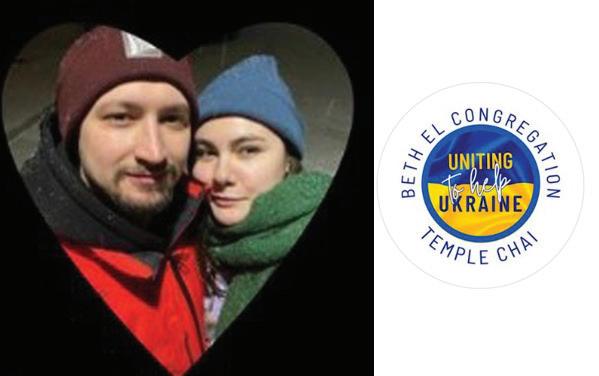
takes documentation and knowledge of the system, which is where Rosenberg comes in. Volunteers have to secure an apartment, furnish it, help the couple set up medical appointments, connect them with English language learning and get their employment authorization in place.
Cindy Weiser, a retired psychotherapist and clinical social worker, has always been drawn to Temple Chai’s social justice work. When she first heard about the effort to bring Ukrainian refugees to town, she knew she wanted to be involved.
“I’ve missed doing traditional social work and that is why I do social justice work; helping people and making the world a better place is at the core,” she said.
Weiser also found herself in a position to fulfill one of the most pressing needs. Her father-in-law had just passed away and she asked her mother-in-law, a Holocaust survivor and immigrant, about donating some of his furniture to the cause.
The coming together of moments that enabled a large donation of furniture was lovely, she said.
Laskin and Vicki Cabot, another volunteer, worked on raising and distributing money to the couple for their expenses. The Center for Jewish Philanthropy of Greater Phoenix will house the donated funds and disperse to Jewish Free Loan for distribution. CJP is doing this as a service to the community and not charging any fees for the fund. The Beth El Congregation and Temple Chai: Uniting to Help Ukraine Facebook page is a place for the community to learn more detailed information and donate. A few details about the couple became
known in the last few weeks. Eduard is from Kherson and a member of the merchant marines. Elizaveta is from Moscow and is now living in Georgia. Neither is Jewish.
Cooper and the other volunteers still have their fingers crossed that everything will go according to plan and as they continue watching the battle on TV, it all feels a little more personal.
“I’m really looking forward to the day our little group goes to the airport with balloons and welcome signs. I want to see everything come together and for them to come, get settled and feel safe,” Cooper said.
She knows there will likely be problems they never foresaw. After all, “Who doesn’t leave a war and not have problems?” But over the long run, she hopes the couple will feel they made the right decision.
Laskin said that many of the volunteers feel a personal attachment to work because many of their grandparents were refugees. She liked the hands-on approach of it all.
“I don’t like looking at the news. I don’t know how to solve the problem. I don’t know how to stop this war, but I thought maybe I can do something personal. When I learned that we could bring someone here it felt like a hands-on way to help one family at a time, and it felt very empowering and very real,” she said. JN
For more information, visit facebook.com/ unitingtohelpukraine or phoenixcjp.givingfuel. com/uniting-for-ukraine.
Jewish News is published by the
“I’M REALLY LOOKING FORWARD TO THE DAY OUR LITTLE GROUP GOES TO THE AIRPORT WITH BALLOONS AND WELCOME SIGNS. I WANT TO SEE EVERYTHING COME TOGETHER AND FOR THEM TO COME, GET SETTLED AND FEEL SAFE.”
LESLIE COOPER
Adozen of Arizona’s county attorneys are on the warpath after Gov. Katie Hobbs signed an executive order on June 22, giving Attorney General Kris Mayes sole authority over any prosecution concerning the state’s abortion laws. The order came almost a year to the day after the U.S. Supreme Court overturned Roe v. Wade and the nearly 49-year-old right to abortion.
While Republican lawyers see the order as executive overreach, Solicitor General Joshua Bendor, who is Jewish and works for Mayes, believes it was the right move even if it’s more of a prophylactic measure given that there are no pending abortion prosecutions. It offers the public a consistency of expectations, which is especially important after the twists and turns last fall surrounding the abortion question and understanding what is legal in the state now.
Mayes has made her stance very clear: She will not prosecute anyone for having or providing an abortion. By giving her authority over all cases in the state, Hobbs, a Democrat, reiterated her “promise to Arizonans that I would do everything in my power to protect reproductive freedom.”
“It’s important to have consistency with what we know, and since we don’t know what the Arizona Supreme Court is going to do in the case involving the Civil Warera law, this (Hobbs’ executive order) is one way of protecting the reproductive rights of women in Arizona,” Bendor told Jewish News in early July.

The law he is referring to is the state’s 1864 ban on all abortions, except in cases preserving the life of the mother, which also mandates two-to-five-year prison sentences for anyone who facilitates an abortion. The law had been blocked since the 1973 Roe decision and was reinstituted at the behest of then Arizona Attorney General Mark Brnovich last September, only to be enjoined in October by the Arizona Court of Appeals.
The appeals court ruled in December that the law outlawing abortions after 15 weeks, signed by former Gov. Doug Ducey in 2022, be upheld. The court’s decision stated that to harmonize the 15-week law with other modern abortion regulations, the Civil War-era law applies only to nonphysicians.
However, that decision is being appealed to the Arizona Supreme Court on behalf of a Gilbert obstetrician who runs an anti-abortion pregnancy center and says he represents all fetuses in the
state. The Yavapai County Attorney has joined his petition.

Bendor’s office has already filed briefs in opposition to his petition and responded to “a slew of amicus briefs” in the case. Now, he and his colleagues must wait and see if the Supreme Court even takes the case.
“We think the Court of Appeals got it right and we hope the Supreme Court would agree with us,” he said. He knows just how high the stakes are for reproductive rights.
“Anytime you have the possibility that the highest court in this state could say, ‘Actually, abortions are entirely illegal,’ that’s concerning,” he said.
He shares that concern with most American Jews, especially Reform and Conservative Jews, who strongly support legalized abortion: A 2015 Pew Research Forum survey found that 83% of American Jews, more than any other religious group, say abortion “should be legal in all/most cases.”
Bendor, his wife and three children are members of both Temple Solel in Paradise Valley and The New Shul in Scottsdale. The couple first came to Arizona nine years ago and Bendor was in private practice at Osborn Maledon in Phoenix until he was recruited into the Attorney General’s office in January.

He has followed the abortion debate from afar both legally and theologically.
Since the overturning of Roe, several Jewish organizations have filed lawsuits claiming the prohibition of abortion violates their religious freedom.
“Jews have different teachings about when abortion is acceptable. We approach it differently than a lot of Christian groups, even though that’s not usually how the debate is framed in terms of religion,” he said.
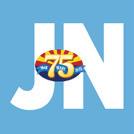
Halacha, the body of Jewish law, holds that a mother’s life is paramount in considering whether a pregnancy should be seen through to term. That approach conflicts with some Christian ideas about abortion that have animated lawmakers in Arizona.
The spring legislative session saw some extreme anti-abortion proposals, even one by Casa Grande conservative Christian and Republican freshman Rep. Cory McGarr that would have changed the definition of “person” in murder, manslaughter and assault charges to include “a living human unborn at every state of development from fertilization until birth.”
Such attitudes are another reason
Bendor likes the consistency that Hobbs’ executive order offers. He knows that his office, and Hobbs for that matter, are playing defense on abortion, which is “not always as satisfying as feeling like you’re moving the ball forward,” he said.
Though it might sometimes seem that “we’re just trying to preserve the status quo, which is far from ideal,” part of playing defense is keeping the public informed about the consequences any court decisions will have for abortion access in the state. “People hear things in the media, but it’s not always clear exactly what it means,” he said.
Bendor’s office is responsible for overseeing all civil appeals involving the Attorney General’s Office, all criminal appeals involving any County Attorney’s office, all challenges to state statutes, as well as enforcing open meeting laws, campaign finance laws, public money laws and many other Attorney General priorities.
For example, Arizona’s abortion rights advocates are now planning a 2024 ballot measure that would ensure a woman’s right to an abortion. If it passes, it will likely be challenged in court. Bendor and his colleagues will be the ones defending it.

Often Bendor is absorbed in cases that he personally believes in, such as the recent legal cases involving mifepristone, a pill commonly used in medication abortions, and whether the Food and Drug Administration (FDA) was correct to give the public access to the drug. Arizona was one of several states to file amicus briefs in support of the FDA.
However, his job is to defend the state’s statutes and laws, which sometimes means defending a position he doesn’t agree with. For example, his office is currently litigating many death penalty cases.
“It’s an extremely weighty thing for the state to kill a person. If it were up to me, I don’t know if we would be doing that. Ultimately, I try to set my personal views aside and act based on my responsibility as a prosecutor,” he said.
Serving the public good is a privilege, he said, even when things get complicated. He is now defending a 15-week abortion ban even though he sees it as too restrictive.
“Sometimes the Arizona legislature has passed a law that I wouldn’t have voted for but it’s usually our duty to defend it,” he said.
At the end of the day, he feels “lucky” to spend his days serving the public and “fighting the good fight” on its behalf. JN

“ANYTIME YOU HAVE THE POSSIBILITY THAT THE HIGHEST COURT IN THIS STATE COULD SAY, ‘ACTUALLY, ABORTIONS ARE ENTIRELY ILLEGAL,’ THAT’S CONCERNING.”
SOLICITOR GENERAL JOSHUA BENDOR
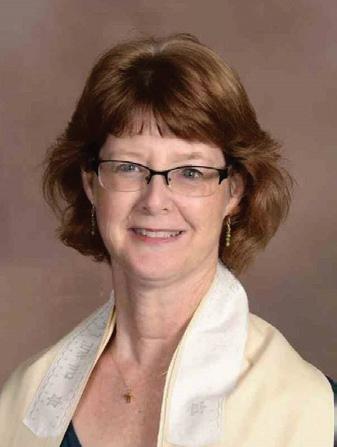
American Jews disagree on many things. “Two Jews; three opinions,” as the saying goes.
Yet one issue on which we are united is that governments have no business getting involved in a woman’s decision about whether or when to have a child.
Back in 2014, more than eight in 10 Jews surveyed by the Pew Research Center said abortion should be legal in all or most cases. Today — one year after the Supreme Court overturned five decades of reproductive freedom — I’d be surprised if that number wasn’t higher.
This poses a special challenge for more than 100,000 Jews in Arizona. Immediately after the high court struck down Roe v. Wade, some lawmakers here clamored to revive an 1864 law, still on the books, that all but bans abortion. Among other restrictions, the law mandates up to five years of prison for any doctor performing an abortion without the mother’s life being in danger
This antiquated law — implying life begins shortly after conception — conflicts with our Jewish teachings. It also conflicts with a shared national value enshrined in our U.S. Constitution that says: “Congress shall make no law respecting an establishment of religion or prohibiting the free exercise thereof.”
Judaism teaches that the fetus is part of the mother until the head emerges during birth. To be sure, that doesn’t mean that Jews favor late-stage abortions, unless the life of the mother is at risk. But we also don’t ascribe “personhood” to a fetus. This view goes all the way back to the Bible. While the Torah makes no specific reference to abortion, the book of Exodus is the biblical text that comes closest to talking about it. Exodus says that if someone pushes a pregnant woman, resulting in a miscarriage, the responsible person will be fined, with no suggestion that the injury is equal to murder. It goes on to say that if the pregnant woman herself is killed, that is murder. The text differentiates between the life of a pregnant woman and the potential life of the fetus.
Jewish law also prioritizes a woman’s health and life over that of the fetus. Rabbinic texts teach that if a woman’s life is threatened by a pregnancy, the fetus may be destroyed, as her life is more important. Arizona’s Civil War–era law says abortions are banned unless a woman’s life is at risk. Yet if a new state law were to consider a fetus as a separate person, even this exception may not hold.
As a proud and loyal American, I’ve always believed that I could freely follow my faith in this great country. That’s why I’m so worried, in the wake of the Dobbs decision overturning Roe, to see lawmakers in several states (including our own) campaigning to make “fetal personhood”
our nation’s new standard.
In Arizona, Republican Rep. Matt Gress has proposed five new laws seeking to do this. They include bills that would let pregnant women drivers use the carpool lane and allow women to collect child support back to the date of a positive pregnancy test.
Fortunately, Governor Katie Hobbs has pushed back. In April and May, she vetoed two of Gress’ bills, including the child support one, chiding him for his repeated efforts to “strip Arizonans of the freedom to control their own body.”
Gress insists he’s trying solely to “protect” women and families. Yet I, and many other women, feel the opposite of safe. It haunts us that this new road, cleared by the Supreme Court, is leading our country to the point where women do not have control over their bodies. As Gress’ remaining three bills come up for votes, we have only our governor’s veto power to protect us.
In Jewish synagogues and temples throughout America, in the year since Dobbs, congregants and rabbis have voiced serious concerns about these egregious attempts. We’re alarmed by both the infringement of women’s rights and the erosion of the separation of church and state.
Many congregations have been sharing information on the relevant Torah teachings during Sabbath sermons, vigils and panel discussions. Organizations

ANDREW SILOW-CARROLL
I’ve been teaching a virtual class on Jewish humor through our partner site, My Jewish Learning. I share classic jokes and bits and then discuss what they say about both the Jews who tell them and the Jewish audiences that enjoy them.
We have a lot of fun, and I think I’ve made the case for how a classic Jewish joke can be as revealing and meaningful as any other classic Jewish text. But I do wonder if I am complicit in a worldview that sees humor as the sum total of Jewish identity. The Pew Research Center found that 42% of Jewish Americans associate being Jewish with having a sense of humor — twice as many who said the
same thing about observing Jewish law. Have we all become Tim Whatley, the dentist on “Seinfeld” who Jerry suspects has converted to Judaism just to be able to tell Jewish jokes?
I had these doubts on the eve of Tisha B’Av, the annual fast that mourns the destruction of the Temples in Jerusalem and other historical calamities. Leading up to the fast day, observant Jews take on many of the rituals of mourning the dead. It’s a grim period, and I’ve always bristled at a custom that demands I perform grief at the height of summer.
The unrelenting sadness of the period must have gotten to the sages of the
Talmud. They tell the story of the elders who look down on the Temple Mount after it has been ransacked by the Romans, and see a fox scamper out of what had been the Holy of Holies, the inner sanctum of the Temple. They begin weeping, but Rabbi Akiva laughs instead.
They want to know why he’s laughing, and Akiva explains. On one level, he understands the absurd irony — the cosmic joke — of what they are witnessing: While the Torah says that any non-priest who approaches the Holy of Holies shall die (Numbers 1:51), the fox violates the space unscathed.
But Akiva is also laughing because the
representing us have weighed in publicly on the issue. The Central Conference of American Rabbis, representing Reform Jewish congregations, recently praised the defeat of a proposal in Kansas that would have changed the state constitution so that it no longer included a right to abortion.
Most American Jews have special cause to be particularly fervent about our constitutional rights. We have ancestors who fled religious persecution in Christian- and Islamic-ruled nations. My grandparents, who immigrated from Ukraine, Hungary and Poland in the early 1900s, came here in search of a place of blessed religious freedom.
Jews and many Christians agree on this value — but we now must support it with our voices and our votes. Conservative Christians may be vocal about their spiritual perspective on abortion, yet in truth they are in the minority, and they certainly don’t speak for me as a Jew. Poll after poll shows the great majority of Americans want abortion to be legal and safe. If that includes you, please let our state and federal congressional representatives hear from you on this matter. Your voice matters to them, even if they disagree with you! And please vote. We are not alone, and we must make our views count. JN
scene of destruction fulfills a prophecy: that Jerusalem won’t be restored to the Jews until after it is reduced to rubble.
We are a diverse community. The views expressed in these opinion pieces do not necessarily reflect the views of the officers and boards of the Jewish Community Foundation, Center for Jewish Philanthropy, Jewish Federation of Greater Phoenix, Cleveland Jewish Publication Company or the staff of the Jewish News. Letters must respond to content published by the Jewish News and should be a maximum of 200 words. They may be edited for space and clarity. Unsigned letters will not be published. Letters and op-ed submissions should be sent to editor@jewishaz.com
PARSHAH EIKEV:
DEUTERONOMY 7:12 - 11:25
very day, three times a day, Jews who pray using the text coined by our sages recite a short list of G-d’s praises which was lifted from Moses’ description of G-d in this week’s Torah portion. The Lord who is merciful, mighty and awesome. The composition of these prayers was done by a body of 120 sages in the very beginning of the Second Temple Era, shortly after the story of Purim.
The Talmud in Yoma 69b asks the question, “Why is it that they’re referred to as the Men of the Great Assembly?” What made them so great? After all, they were likely of lesser stature than sages of previous generations, men who were present during the time of the First Temple.
The Talmud then directs us to this phrase that Moses had said — this singular praise of G-d and tells us of the metamorphosis it underwent through the ages. When the prophet Jeremiah witnessed the destruction of the Temple and saw how the Babylonians were given free reign to trample, pillage, deface and destroy the
The other sages are comforted.
Miriam Zami, in a deep analysis of the story, says Akiva “resists the notion that the only future is a bleak one.” Laughing and recalling God’s promise to restore Jerusalem is “an act of healing, protesting Roman power and protesting the notion of a fundamentally meaningless existence.”
That’s the kind of laughter that scholars of Jewish humor have long celebrated: “laughter through tears,” the “laughter of defiance.” As the Yiddish scholar Ruth Wisse wrote in her study of Jewish humor, “Both mystic and comedian aspire to get the better of a world they are powerless to reform.”
I worry, though, that humor can offer an undeserved escape from grim reality — perhaps healthy in small doses, but delusional when it becomes a way of being in the world. When we celebrate the genius of Jewish humor are we mocking those who suffered without its comforts?
To paraphrase the German philosopher Theodor Adorno, is making comedy after Auschwitz barbaric?
Like Akiva’s buddies, however, I found some comfort in the latest HBO special by veteran comedian Marc Maron. Now 59, Maron has long been a “comic’s comic” but found wider fame in recent years on the strength of a popular podcast and his
sacred site, he said to himself, “Where is the might of the Almighty? There is no display of strength here!” And so, when he prayed, he omitted any mention of “The Mighty One.”
EMidway through the first exile, when the prophet Daniel — the prophet who was called to interpret the writing on the wall which signified the end of the Babylonian rule and the beginning of the Persian rule — witnessed how the Jews were dominated by and subservient to foreign powers, he said to himself, “Where is the awesomeness of the Almighty? The nations perceive no awe in G-d or His people.” And so, when he prayed, he left out the phrase, “The Awesome One.”
The Talmud asks, “How could these great men, prophets though they may be, tamper with a formula that Moses created?” The Talmud answers, “Because they knew that G-d is truth and they could not bring themselves, nor would G-d Himself desire them, to utter a description which to their eyes, lacked truth.”
Nonetheless, when the Men of the Great Assembly took it upon themselves to compose the Amida, the prayer, they reinstated the original text of Moses. “Where is His might in evidence when marauders pillage the Sanctuary? Therein lies His might! For Him to remain
roles in the Netflix series “GLOW” and his eponymous sitcom on IFC. His style is dyspeptic and confessional, and Jewish to a degree that seems to surprise even him: “There’s part of me that just wants to keep poking the Jew thing,” he says at one point in the new special.
“From Bleak to Dark” is Maron’s first special since the death, in 2020, of his partner, the filmmaker Lynn Shelton. He is one of a number of comedians who have been exploring their personal grief in their comedy; as New York Times critic Jason Zinoman pointed out in a recent essay, “These new shows illustrate how grief, precisely because it’s usually handled with solemnity, jargon and unsaid thoughts, is ripe territory for stand-up.”
The very first words of Maron’s special would fit right into the key text of the Tisha B’Av liturgy, known as “Lamentations“: “I don’t want to be negative,” he says, “but I don’t think anything’s ever gonna get better ever again. I don’t want to bum anybody out but I think this is pretty much the way it’s gonna be for however long it takes us to polish this planet off.”
He’s talking about global warming, but he eventually shifts to talking about Shelton’s death. At first he wonders how he can discuss his loss on stage, and then imagines a sad one-man show called “Marc Maron: Kaddish, A Prayer for the Dead,”
mute, allowing them to carry on with the desecration of His Temple, is the biggest demonstration of His might and self-control!” Where is His awesomeness evident when His people are dominated by other nations? Therein lies His awesomeness, for they are a sheep surrounded by wolves yearning to destroy them, and yet they continue to exist despite being dominated by those wolves.”
That is why they are called the Great Assembly. Their greatness was their ability to perceive the truth of Moses’ description under less-than-ideal conditions and to reclaim his original proclamation.
How were they able to see what the prophets before them could not?
Rabbi Shlomo Farhi suggests that it has to do with a difference in big-picture perspective. As prophets, Jeremiah and Daniel experienced G-d first-hand. They conversed with G-d and saw His active hand in creation. For them to see a lack of open Divine interference was a lack of a display of might and awesomeness.
The Men of the Great Assembly were from a different era. They were of an era where prophecies had halted. Where open miracles ceased to exist. Where to perceive any embodiment of Divine was to read in between the lines of natural occurrences. They lived through the story of Purim, where the Hand of G-d was not accom-
and even chants the opening words of the prayer.
But Maron is not one to take comfort in Jewish ritual. “I’m not religious. I’m Jewish,” he explains, as if the second sentence makes the first one self-evident.

As for comedy, he says, “I’m a guy who talks about his life. So I wasn’t clear how that was gonna go. How am I going to talk about [Shelton]? You know, is that ever going to happen? Is there a way to bring humor to that?”
There is, and it came to him on the night the doctors took Shelton off of life support. At first, he is not sure he wants to be there, but his friends convince him that he would regret it if he didn’t say goodbye. “So I walk in there and really see her and she’s gone,” he relates. “And I was able to touch her forehead and tell her I love her and cry for a few minutes.” And then, because he is at heart a comedian, he thinks of a joke: As he walks away from her hospital bed, he thinks, “Selfie?”
“When I wrote that joke, or when I came up with it, it made me feel so happy,” he says.
Maron knows he is not the only person in the theater, or watching at home, who is grieving, and his words are solace for them as much as for himself. In another famous Talmud story about laughter, Elijah the Prophet and a Rabbi Baroka come across
panied by a clap of thunder, billowing clouds or the splitting of a sea. It was with the nudge of a particular person being in a particular place at a particular time. A conversation overheard, an overly ambitious officer, a sleepless night, a reading of chronicles, plots and subterfuge. They were more attuned to the quiet nuances of might and awesomeness that would escape the attention of men that were used to grand displays.
The lessons we pull out from this piece of Talmud, I venture, is that we must meet the Almighty from a place of truth. We cannot pretend we know Him in any other way than we have experienced or discerned. But also, that we must seek out and attune ourselves to how we might experience the kindness, the might and the awesomeness in the muted, subtle and murky world we find ourselves in. JN
two men in the marketplace. The two explain that they are jesters. “When we see a person who is sad, we cheer him up,” they explain. “Likewise, when we see two people quarreling, we try to make peace between them.”
Says Elijah, “These two have a share in the World to Come,” which is a prophet’s way of saying they have a free pass to Heaven.
I don’t know if Maron knows the passage, or the one about Akiva, but his special feels like essential viewing on the eve of Tisha B’Av, when Jews are asked to hold onto hope and embrace life despite a tragic history. “I find that humor that comes from real darkness is really the best because it disarms it,” he explains. “It’s elevating the spirit. It’s why I got into comedy, because I’ve watched comics and they would take things that were complicated or horrifying and simplify them and sort of make you see them in a different way and have a laugh. And I think it’s a beautiful thing and necessary.”
And then, because he is a comedian and Jew, he can’t resist a joke: “I believe there were probably some hilarious people in Auschwitz.” JN
The views and opinions expressed in this article are those of the author and do not necessarily reflect the views of JTA or its parent company, 70 Faces Media.



After Marcia Solochek retired, she decided to spend some of her newfound free time volunteering so that she would be able to do something meaningful while still getting to be around people. Finding “Better Together,” Gesher Disability Resource’s intergenerational program that connects Jewish seniors and young adults, was “truly inspiring and a very worthwhile experience,” she wrote in a letter that was read aloud at the group’s June gathering.
Gesher partnered with seniors at Temple Kol Ami of Scottsdale (TKA) to engage in programming around Jewish values for members of both organizations. The Better Together program, meant to create connections and bridge the generations, was developed by a national foundation and is operated in partnership with the Jewish Education Project.
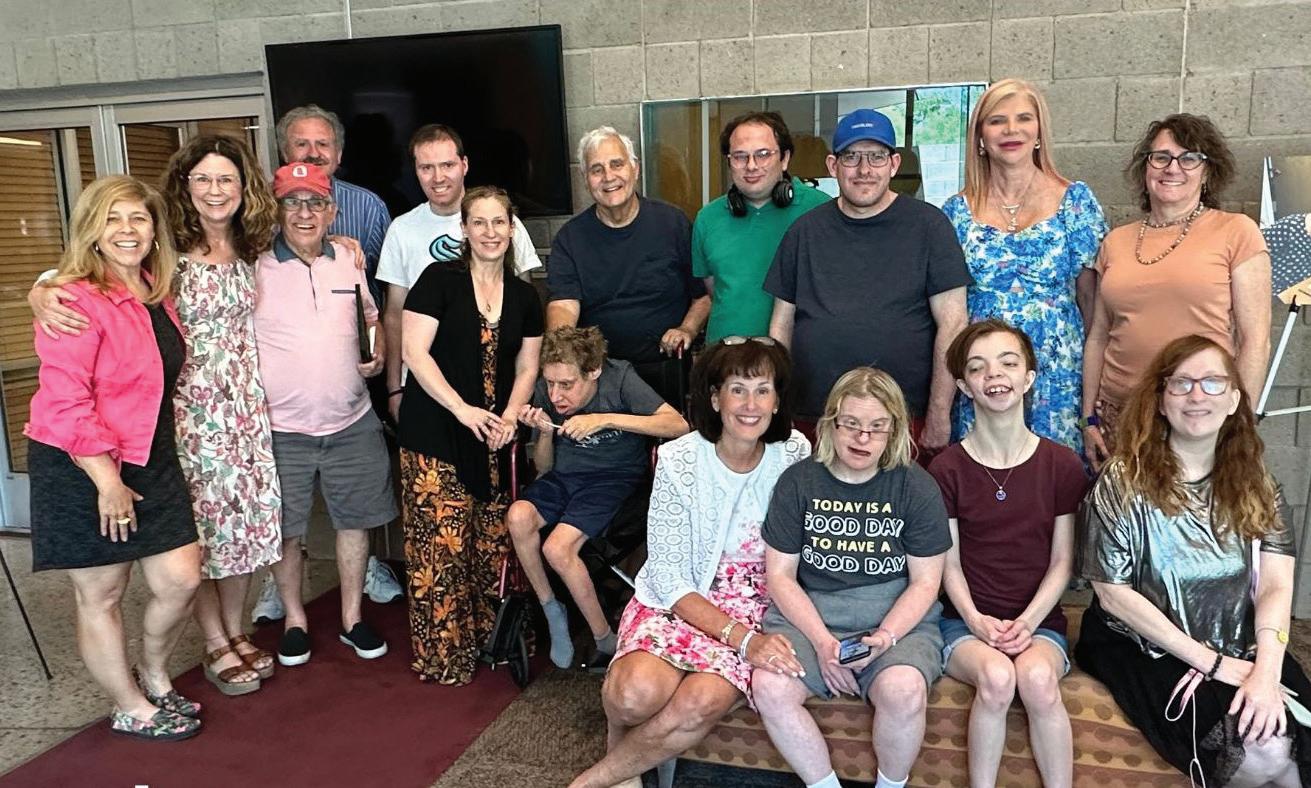
“The results have been nothing short of life-changing for all,” said Fred Fingerhut, one of the TKA seniors who participated.
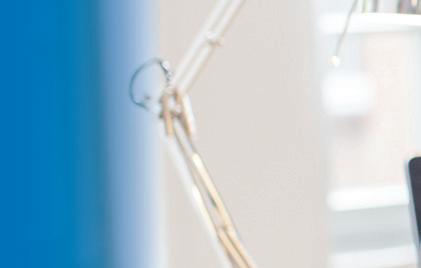
Nancy Drapin, TKA’s executive director, said seniors “jumped at the chance to both use their life experiences and make an impact at the same time.” Seniors are able to offer empathy and their unique perspectives on life, she
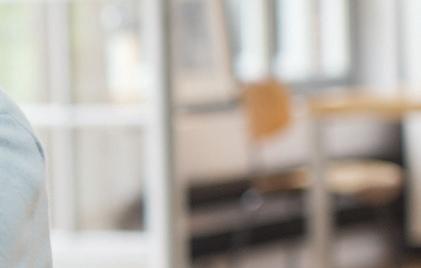
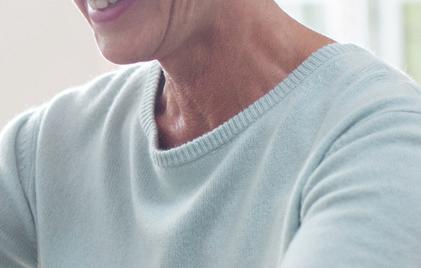
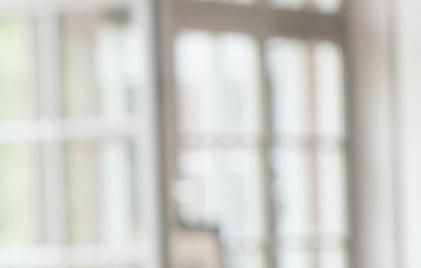
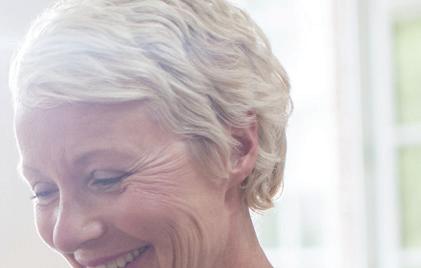


added.
“It was an amazing opportunity for generational learning for our community,” agreed Amy Hummell, Gesher’s executive director.
Stacy Rosenthal, Gesher’s director of programs, explained that Better Together typically pairs Jewish seniors and teens. Gesher serves members of the disability community, and while not all of them are teens, Rosenthal and her colleagues believed they would pair well with seniors, given that the two populations share some of the same struggles, such as finding reliable transportation, relying on others for support and an increased need for medical interventions.
“We applied for the grant and are thrilled to be recipients,” she said.

TKA seniors and Gesher members met twice a month beginning in February. A June 11 ice cream social wrapped up the first year of a three-year program — after tailoring it more specifically for Gesher and finding participants the first year was condensed. The next two years will run from September through May. The June event was planned entirely by the Gesher members, who made the guest lists and invitations, chose the ice cream flavors and toppings and put together a photo booth.
Rosental said they had the most beautiful day where the buddies introduced one another and shared something about each other.
TKA senior Solochek was unable to attend the social, so she wrote a letter to be read aloud at the event. In it, she introduced her “newest BFF,” Mollie Cheswick from Gesher, describing her as “a delightful young adult, full of interests, including yoga, meditation and warm chocolate chip cookies from Dirty Dough!”
Solochek wrote of how she visited
Cheswick at the Five Below store she works at in Desert Ridge Marketplace and sought her help in selecting a present for her grandson’s preschool graduation. Cheswick first advised her to buy Cheswicks’s favorite Squishmallow, a popular stuffed animal, but eventually helped her select some preschool books and even offered Solochek use of her employee discount.
“She (Cheswick) is very creative, as evidenced by the buddy box she created,
the decoration on the invitations to this event and many of the other activities we were involved in,” wrote Solochek.
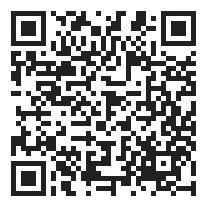

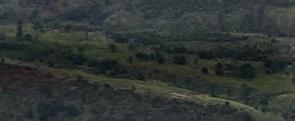





Rosenthal also invited Congregation Beth Israel (CBI) congregant Helene Miracle, who she got to know while working at CBI in Scottsdale, to be a part of the group. Miracle was paired with Sophia Landay, 22, who instantly charmed her because she dots the “i” in her name with a little heart, something Miracle loves.
Landay enjoyed learning about how different things were for Miracle growing up, celebrating holidays and having a bat mitzvah. Landay became a bat mitzvah at Congregation Or Tzion in Scottsdale.

They talked about their favorite food, sport and Jewish holiday. Landay loves gefilte fish, baseball and Chanukah.
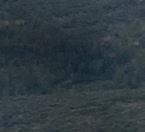
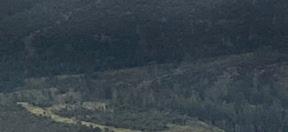
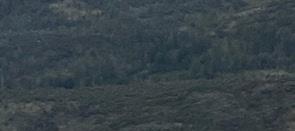
“Hanging out with my family and seeing the expressions on their faces when they open their presents is just really special,” Landay said. As for the gefilte fish, there’s no heartwarming explanation. She just likes what she likes.



“It touches my heart to be involved with Better Together,” Miracle said, adding that other CBI members would like to participate in the future.
The eight group meetings were organized around topics like Jewish leadership, empathy and positive interaction, Jewish food and culture, what should be hidden vs. shared and online safety.
Most times, the Gesher members met first and then were joined by the seniors. The day they discussed online safety, Rosenthal thought the seniors would lead the way but instead, it was the Gesher members who taught the seniors about maintaining a sense of privacy, how to recognize a safe website and how not to get scammed.
“Some programs seem like they’ll be helpful and worthwhile, and end up surpassing expectations. This was one of those programs, and it reminded us of


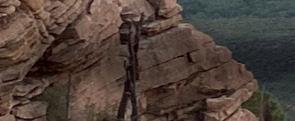




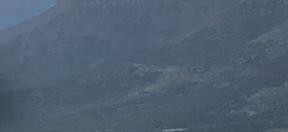













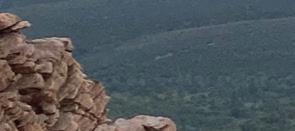





why we do the work we do in the Jewish community,” Rosenthal said.






It certainly surpassed Solochek’s original expectations. She initially signed up to volunteer in the broader Jewish community while still supporting TKA. After getting to know Cheswick and her mother, and seeing the dedication of Rosenthal and Gesher’s leadership, Solochek plans to stay involved with the Cheswicks and Better Together.
After the High Holidays, Gesher will start the second year and is opening the program to all Jewish seniors in Greater Phoenix.








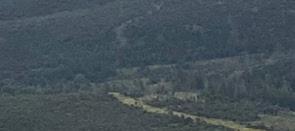






Landay has already been thinking of ideas for discussion for the fall. She wants to apply the mentorship model to help kids in preschool and daycare.
“We can help them prepare for growing up,” she said. JN
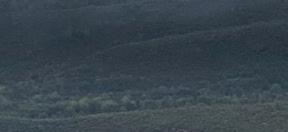
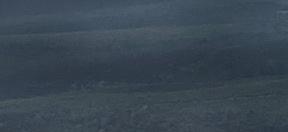


To learn more about Gesher’s Better Together program, contact Stacy Rosenthal at StacyR@ gesherdr.org.

 PHILISSA CRAMER | JTA
PHILISSA CRAMER | JTA
Helen Mirren will soon become linked with Golda Meir in the minds of many viewers when she plays the late Israeli prime minister in a new film. But the award winning actress has another, real-life connection to Meir: the two are related, Israeli genealogical researchers revealed on July 13.
Mirren was in Jerusalem for the Israeli premiere of “Golda,” the dramatic film she’s headlining about Meir’s handling of the Yom Kippur War.
The movie headlined the Jerusalem Film Festival, with a red-carpet screening.
During a press conference before the screening, researchers with MyHeritage presented Mirren with evidence linking her to Meir, who served as prime minister from 1969 to 1974 and remains the only woman to head Israel’s government.
The connection is distant, stretching nine generations back through Mirren’s paternal Russian ancestry, and through marriage only. (The genealogy also connects Mirren to two Israeli presidents, Chaim and Ezer Weizman, and to the British royal family.) Still, Mirren — who is not Jewish — said

the revelation offered an important lesson.
“It’s miraculous, isn’t it, really? It just goes to show that we are all one family actually,” she said. “In times of divisiveness and strife as I know Israel is in right now … It would be a very good thing to remember that fact.”
Mirren and her Israeli collaborators — including director Guy Nattiv and co-star Lior Ashkenazi – reflected on the widespread protests against the right-wing government’s efforts to sap the power of the country’s Supreme Court.
“I am not Israeli. … I’ve watched it from afar these past weeks,” said Mirren, who said at the Berlin premiere of “Golda” in February that she thought Meir would be “utterly horrified” by the current government’s efforts.
“I’m personally moved and excited when I see those huge demonstrations,” she added. “I think maybe it’s a pivotal moment in Israeli history.”
Nattiv said that he had been attending the demonstrations with his father “to stop this crazy thing from happening” and that he had encountered a veteran of the Yom
Kippur War who compared the current moment to the existential threat that Israel faced — and overcame — then.
“In a way we are fighting to shape the future of our country,” he said.
The film portrays Meir being caught flat-footed by aggression from neighboring Arab countries, then overseeing a military response that transformed from fumbling to triumphant — and eventually led to Israeli-Egyptian peace in 1979. It shows her deeply struggling over the deaths of Israeli soldiers who might have lived had she heeded warnings of war. In 1974, Meir resigned amid divisions within her party over where to assign blame.
“She understood that as the leader of the country she had to take responsibility, and she did — unlike many other leaders who, when things go pear-shaped, start pointing fingers at other people,” Mirren said. “I think that must have been incredibly painful.”
Mirren’s connection to Israel dates back to 1967, when she traveled with a Jewish boyfriend to work for a month on a kibbutz in the country’s north. “I’m amazed every
time I come,” she said.
Nattiv said one of his Israeli colleagues had initially suggested Mirren because of her resemblance to his own grandmother. He said, “I saw the Jewish soul in Helen immediately. We feel like it was the right move.”
Mirren said her motivations for taking the role were simple.
“I’m a horribly greedy actress. All I want to do is play great women,” said Mirren, who won an Oscar for portraying Queen Elizabeth II and has also played Queen Elizabeth I, among other historical figures. “And Golda was one of the greatest.”
Before “Golda” hits screens worldwide this month, Mirren had another major role — as the narrator in “Barbie.” She said both movies offered portrayals of strong women, and suggested a possible addition to the mounting list of promotional tie-ins for the hotly received live-action film about the iconic doll.
She said, “I think we need a Golda Meir Barbie, don’t you think?” JN

As we move through life, it’s essential for us to confront the realities of aging and the need for long-term care. There seems to be a common misunderstanding that various health care programs, such as Medicare, Medicare Advantage, Managed Care or supplemental health plans, will fully cover the costs of care in our homes, assisted-living homes and communities or independent-living communities. In this column, I aim to shed light on the importance of planning for long-term care and the available options for funding it.
First and foremost, we must acknowledge that none of us are immortal. As difficult as it may be to face, planning for our own mortality is a responsible and necessary step. The adage, “If you fail to plan, then you plan to fail,” perfectly encapsulates the gravity of this matter. Just last week I learned that two of my friends received some devastating news regarding their health. The prognosis they were given is incredibly challenging to come to terms with, and my thoughts and prayers are with them and their families.
Statistics show that the likelihood of requiring some form of long-term care is remarkably high. In fact, experts estimate that nearly 70% of individuals turning 65 today will eventually need long-term care. Moreover, about 20% of people will require it for longer than five years, according to LongTermCare.gov. These figures alone should serve as a wake-up call for all of us to take action and prepare for the future.
When considering long-term care, it is crucial to understand that there are limited options available to finance it. Let’s explore these options:

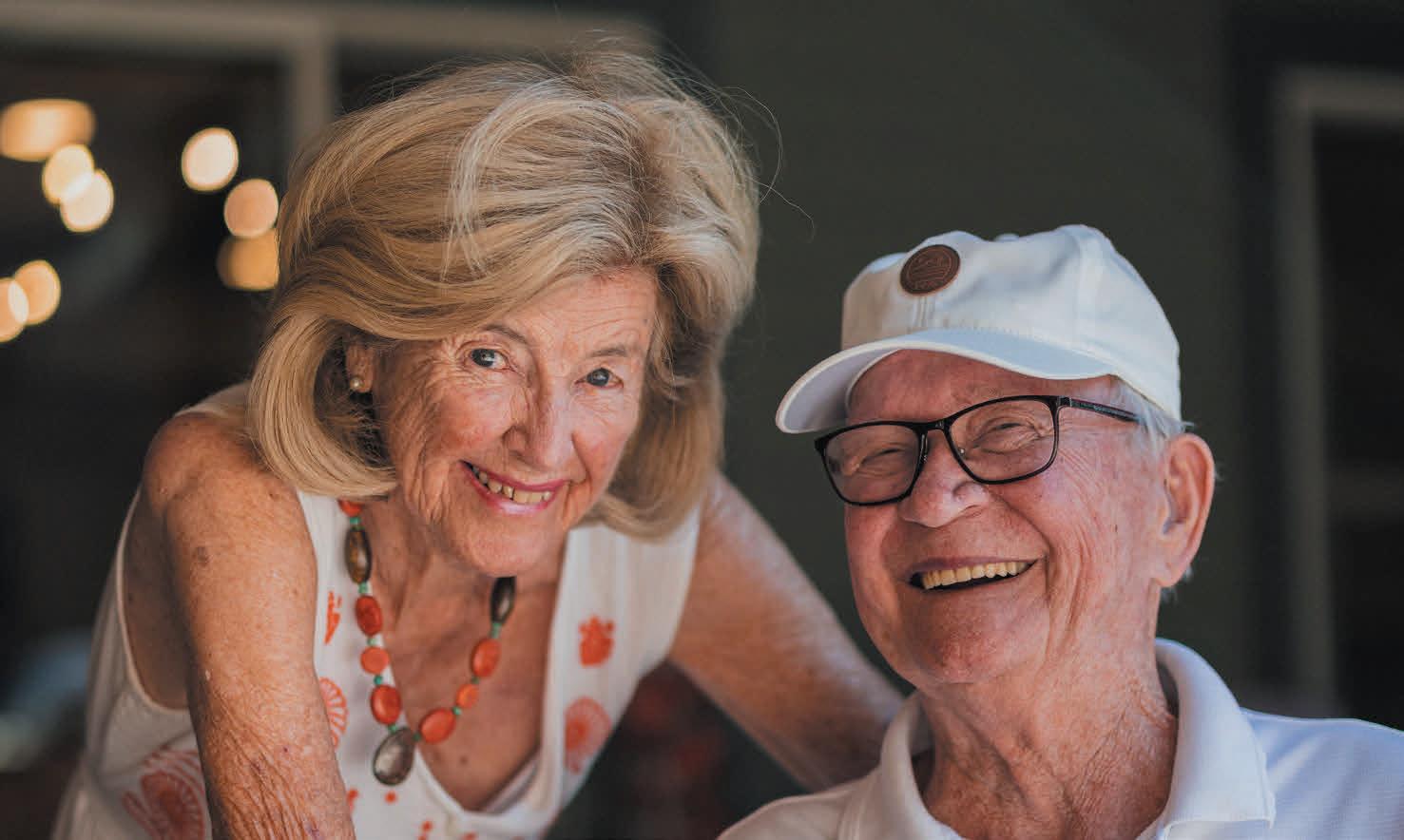
1. PRIVATE PAY FUNDS: The most straightforward method to pay for longterm care is through personal savings and assets. While this might be feasible for some, it is not a practical solution for everyone. Long-term care expenses can be exorbitant, quickly depleting one’s savings and leaving them financially vulnerable.
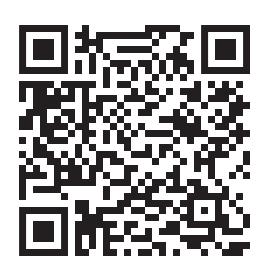

2. LONG-TERM CARE INSURANCE: Longterm care insurance is a proactive approach to planning for the future. It helps cover the expenses associated with various longterm care services, such as nursing homes, home care and assisted-living facilities. The earlier one invests in long-term care insurance, the more comprehensive the coverage and the lower the premiums. To
date, approximately 7.5 million Americans have thought about their long-term care needs and have purchased a long-term care policy.
3. VETERAN BENEFITS: Veterans or their spouses may be eligible for certain long-term care benefits through the U.S. Department of Veterans Affairs. Exploring these options can offer valuable support to those who have served our country.
4. MEDICAID: Medicaid can be a lifeline for those with limited financial resources. However, qualifying for Medicaid is not easy, as it is a means-tested program with strict eligibility requirements. To avoid spending down assets to qualify, strategic planning well in advance is necessary. Now, more than ever, it is evident that each one of us must actively plan for longterm care. We cannot rely solely on our health insurance plans, or the government, to cover all our needs when the time comes. By taking the initiative and securing appropriate funding, we can protect ourselves and our loved ones from financial hardship during a vulnerable phase of life. As you consider your options, keep these crucial points in mind:
1. START EARLY: Long-term care planning should begin as early as possible. The younger and healthier you are when you purchase long-term care insurance, the better your coverage and rates will be.
2. UNDERSTAND THE FINE PRINT: Research and fully comprehend the terms and conditions of any insurance policies you consider. Each policy may have specific coverage limitations and exclusions.
3. SEEK PROFESSIONAL ADVICE: Consulting with a financial advisor or an attorney that specializes in elder law can provide valuable insights and help you make informed decisions.
4. FAMILY CONVERSATIONS: Discuss your long-term care plans with your family members to ensure everyone is on the same page and understands your wishes. The truth of the matter is that the need for long-term care is a reality we all must face. By acknowledging this fact and planning accordingly, we can secure our future and safeguard our financial stability. Remember, proper planning today can bring peace of mind for tomorrow and an incredible gift to your family. Together, let us embrace preparedness and ensure a dignified and secure future for ourselves and our loved ones. JN

It’s no secret that the catering industry must continually evolve to keep up with societal changes, culinary innovations and customer demands. On top of that, many caterers experienced a steep decline in business as the pandemic put a halt to most in-person events.
The National Association for Catering and Events conducted a survey of its 3,300 or so members early in the pandemic and found that more than 75% had “already experienced personal financial hardship through business closures, layoffs, furloughs and reductions in hours or pay,” according to a January 2021 Washington Post article.
But after two years of event cancellations, interruptions and delays, caterers are busy once again as people attend, and host, events in person — and food is often the focal point of any Jewish celebra-


tion. Jewish News asked questions about industry tips and trends to professionals with Arizona Catering, Events 13/Candy Rocks, M Culinary Concepts and Brad’s Kitchen.
Some stated that future catered events won’t look the same as in the past.

“The days of buffets of underwhelming protein, carb and vegetable plates are going out of style,” said Jody Stachel, founder of Events13/Candy Rocks.
“Clients are choosing heavy ‘grazing’ tables for the entire evening.” A “grazing table” is a decorative tablescape filled with arranged meats, cheese, crudités, antipasti as well as seasonal fruits, vegetables, flowers, decorations, serving utensils and dishes.
Satchel said that clients are also looking for their guests to have a “culinary experience.”
“Our caterer loves chef-plated action stations. It allows for a beautifully done plate while lowering the costs associated with seated/plated dinners,” she said. “It also lends itself to a more elevated vibe as opposed to self-serve stations.”
Nichole Cook, project manager and marketing professional at M Culinary Concepts, agreed. “Experiential events are more popular than ever, and attendees are excited to hit interactive culinary experiences. Chef-action stations continue to be popular, and anything that allows guests to customize their dish in some way.”
Cook said that one of the most popular items she offers is the “nacho cheese on draught” station, featuring flavored smoke-infused, or local craft beer-infused, warm cheese pouring out of tap handles.

AT THE VOSJCC SUNDAY AUGUST 20, 2023 12-3PM
COME SEE THE BEST IN: EVENT PL ANNING
PHOTOGRAPHY
Guests pour it over nacho chips or pretzel bites, then select their favorite toppings.
Cheese is also a favorite ingredient in a popular dish offered by Arizona Catering. “We have a cheese mashed potato that I love. I could eat it every day!” said Jeannia Smith, president of Arizona Catering.
Bradley Levy, owner of Brad’s Kitchen, said his mobile kosher pizza oven “is always a big hit.” The pizza oven is small and light enough to roll into someone’s backyard or patio — any place where a person could fit a small car. The kosher oven, the first in Arizona, is overseen by Chabad of Arizona.

While pizza remains a favorite item, as well as other comfort foods such as sliders, tacos and pasta, Asian fusion stations are gaining a ton of momentum, said Stachel. “Bao Buns, dumplings, noodles, rice and sushi rolls are highly requested,” she said.
“Our clients definitely request globally inspired dishes and items crafted with local and artisanal ingredients,” added Cook.
Smith said that they’ve catered a lot of fine-dining events that requested local, organic products. “We’ve also seen a lot of parties that are adding more, or entirely, vegan menus this year and also more menus for gluten-free guests.”
Beverages are also a large part of celebrations, and the “sober curious” movement has influenced how caterers approach serving alcohol. Popular among young adults, sober curiosity involves thinking about the decision to drink rather than going along with social norms. People may do it to improve mental health, sleeping, relationships or other aspects of their life. It is not, however, the decision not to drink due to an alcohol addiction.
“People of all ages, particularly millennial and Gen Z guests, are turning to alcohol-free beverages,” said Cook. “Crafted ‘mocktails’ made with alcoholfree distilled spirits and premium mixers, as well as alcohol-free wines and beers, are appearing at events more than ever.”
“Having nonalcoholic choices at your bar will be greatly appreciated by your non-drinking guests,” added Stachel.

Certain social media platforms, including Tik Tok, keep her on top of popular trends in food and beverages. “We love to display special desserts, candy store ‘feels,’ themed food, cotton-candy carts and french fries in cute containers,” said Satchel.

She said her favorite events to cater for are b’nai mitzvahs, Friday night Shabbat dinners, Saturday morning kiddish, Saturday night celebration dinners and Sunday brunch.
“We love catering events featuring fun, interactive food stations, as well as multicourse plated dinners with cleverly reimagined classics,” said Cook.
And Smith’s favorite events to cater for include weddings, corporate events and backstage concerts.

Considering the food and beverages you choose for your event can add up to a major expenditure, Cook, Levy, Stachel and Smith shared tips on what to look for when hiring a caterer.
When choosing a caterer, Smith suggested setting up an appointment to meet. “You should feel comfortable with your caterer and know that they can share your vision for the event,” she said.
“Always choose caterers that were directly referred from friends, family and your event planner,” said Stachel. “They have tasted their food, experienced their service and felt overall the pricing was fair.”
“Choose someone with a good reputation in the community,” suggested Levy. “A good caterer is easy to reach, responds quickly, hears what you want and makes you feel confident that your event will be wonderful.”
Stachel added to make sure to ask about the cost for all servers, chef fees and what they include for serving such as plates, forks, spoons, knives, napkins, linens, etc. because it can be the most
expensive part of your celebration, you want to know all the costs up front.
Cook said to share a budget you have in mind but to understand that it may not fit the event as you imagined it.
“Let your caterer guide you to what will work best — we want your event to be as successful as you do,” said Cook. JN
 TOBY HERMAN | HEY ALMA VIA JTA
TOBY HERMAN | HEY ALMA VIA JTA

Growing up, my whole world was Jewish. I went to the YMHA for pre-school. When I hit public school for kindergarten, I couldn’t understand why my mom thought that my teacher might prefer a Christmas present to a Chanukah one. (Shout out to Mrs. Wong, and apologies.)
I went to temple, to Hebrew School. Our house was kosher. One time, we had a leak in the ceiling and my mom told me to run and grab a tepple — Yiddish for pot. I sprinted into the kitchen only to sprint right back and ask if the pot should be meat or dairy.
This was what I knew.
So, it would make sense that my Barbies were Jewish, too.
My personal history with Barbie was cloaked in Judaism. I got my first Barbie for Chanukah. In 1983, I asked for the Barbie Silver ‘Vette, a plastic convertible with Barbie Pink interior, which promised “on-the-go glamour for Barbie doll!” A few days before the holiday, I snuck around the house looking to see if my parents had gotten it for me. When — to my absolute horror — I found it, I immediately ran upstairs (hysterically crying) and told my mom. She shrugged, unbothered and told me I’d only ruined it for myself.
Age 7 and my Jewish Guilt Game was STRONG.
As was my Jewish-themed imagination.
So, when Ken (FINALLY) proposed to Barbie in 1986, it was time to plan a Jewish wedding.
As their wedding planner, I handled everything. We secured the venue (my parents’ basement) and set the date (today). As far as the time of the event, I had about 45 minutes before my mom called me for dinner, so we went with “now.”
The bride wore a fashion-forward gold jumpsuit (on loan from Golden Dream Barbie) with a sheer capelet that could be fashioned into a veil. The matching sheer overskirt — a confoundingly odd accessory
that was meant to be worn as some sort of back apron — would unfortunately RSVP as a “no” (with regrets).

Barbie had planned to wear her hair up for the occasion, but the elastic broke, so she wore it down.
Maid of Honor Skipper, Barbie’s younger sister, borrowed Barbie’s Peaches ‘N Cream dress for the occasion. (It was wayyyyyyy too big in the chest, but we didn’t say anything since Skipper can be super sensitive about that.)
The bridesmaids (Barbie, Barbie and a rogue Cabbage Patch Doll named Jacqueline Addy) wore their own gowns, which wasn’t really done in the ‘80s, but Barbie has always been a trendsetter. Plus, there was no time to change them since the buttons always took forever, anyway.
Author’s Note: The groom wore a mustard yellow sweater vest, sans shirt, and some brown felt pants that may not have even belonged to him. He had no shoes. Honesty, who cares what he wore. She’s Barbie. He’s just Ken.

As guests began to arrive, the final touches were put in place. Barbie’s colors were pink and pink. (Rumor has it, this is what inspired Shelby’s “blush and bashful” wedding palette when “Steel Magnolias” was released just a few years later.)
The flowers were tasteful and plastic.

Turns out that Ken’s friend Ken was a rabbi, so we were all set in that department.
The ketubah signing took slightly longer than allotted for since the pen kept falling out of Barbie and Ken’s hands.
As I sang the “Growing Pains” theme song, the bride walked herself down the aisle. (Her father was in the hospital due to a recent decapitation and since Doctor Barbie was in attendance, the surgery would have to wait.)
Halfway down the aisle, Barbie and I realized that Ken had forgotten to set up the chuppah. (Ken is an idiot.) In a moment of panicked brilliance, I grabbed the previously discarded Golden Dream
Barbie sheer capelet and affixed it to the top of Ken and Rabbi Ken’s heads. It was beautiful.
The couple recited their vows (“Do you want to get married?” “I do.” “Me too.”) and exchanged rings. Since only Barbie had a hole in her ring finger for a diamond to be inserted, Ken did not get a ring. No one noticed.
Rabbi Ken placed a pink plastic chalice inside a purple Barbie legwarmer and Ken stomped down on it. It did not break because Ken can’t do anything right. Thankfully, shouts of “Mazel Tov!” drowned out my exasperated sigh.

Barbie and I decided that cocktail hour was a waste of time, so the reception began immediately following the ceremony.
The house band, Barbie and the Rockers, took the stage and introduced the newlyweds. They played “Hava Nagila” but only knew the first two lines, so they just kept repeating them. Several Kens lifted Barbie in a chair, but groom Ken couldn’t find a chair of his own so he kind of just watched. The crowd thinned out quickly anyway since it’s incredibly difficult to do the hora with such high arches.
The couple danced their first dance to “Matchmaker” from the “Fiddler on the Roof” soundtrack. Despite the short notice, the band rocked. Everyone enjoyed their music, especially Dance Sensation Barbie, who showed off as usual.
Turns out, it was a good thing Ken couldn’t break that glass because Rabbi Ken used it for kiddush. Then, he said Hamotzi over a loaf of plastic French bread. It was embarrassing, but the best we could do given the time constraints and Mattel’s lack of a kosher foods section. At least he knew all the words.
Skipper’s speech was sweet, bringing tears to many a painted eye. Ken’s speech was kind of dumb. Barbie’s mother would have welcomed guests with a speech as well, but she was at the hospital with her decapitated husband.
Dinner was catered by Barbie’s Dream Kitchen so everything smelled vaguely of vanilla. The menu included a turkey, a carton of milk, a dozen eggs, something that was probably a pie and a bottle of wine.

The wedding cake was three tiered and white, decorated with white flowers. Obviously, the inside of the cake was bright pink, you just couldn’t see it.
At the end of the evening, Barbie changed into a yellow terry romper and white slip-on sneakers. Ken did not change since this would have required foresight on his part.
As the guests waved, the happy couple drove off in Barbie’s Corvette. She even let him drive.
Mazel Tov, Barbie and Ken! JN
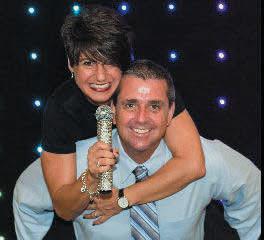
For more articles like this, visit HeyAlma.com.




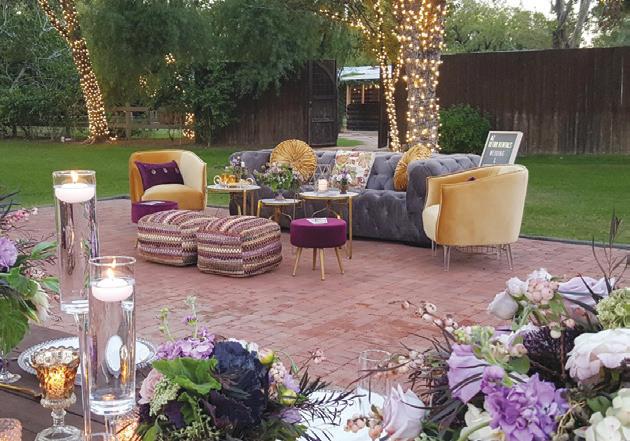
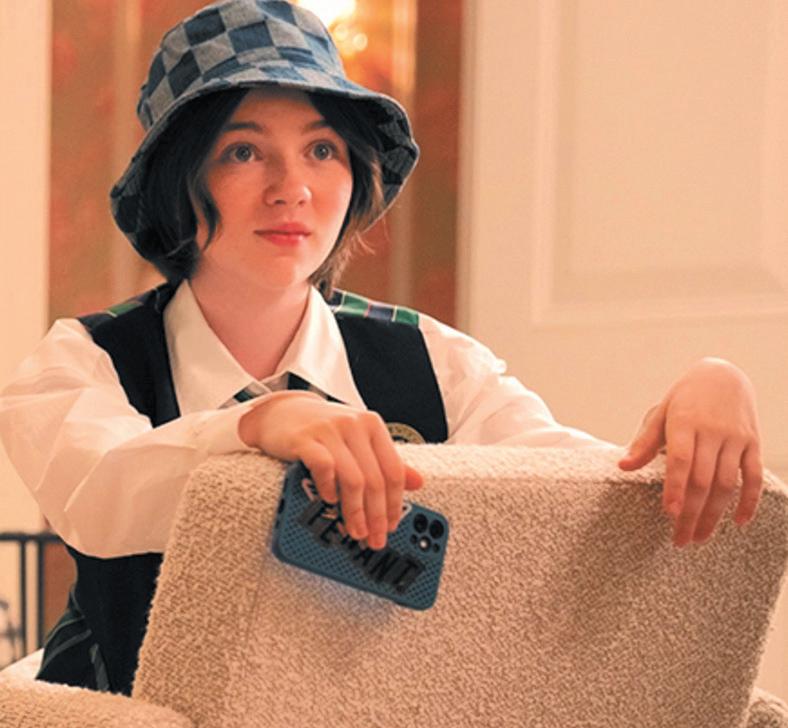 LIOR ZALTZMAN | JTA
LIOR ZALTZMAN | JTA



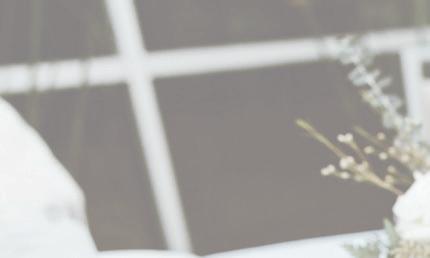

Last year, Alexa Swinton brought us arguably one of the most high profile TV b’nai mitzvah ceremonies of all time — or rather, the “they mitzvah” that wasn’t.


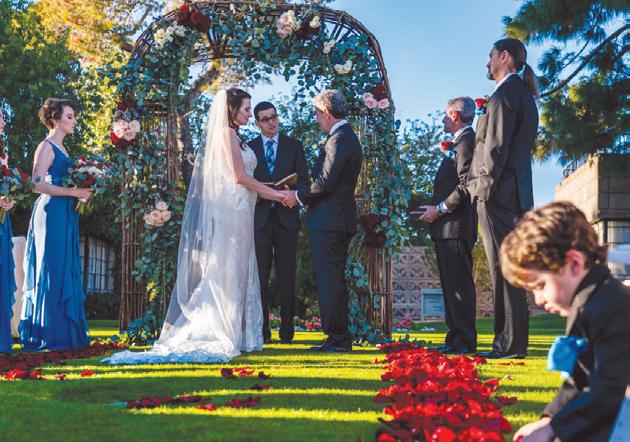
Swinton, who plays Rock Goldenblatt in “And Just Like That…”, gave viewers a relatable portrayal of a teen struggling with their gender identity and their connection to Judaism. In the final episode of the first season of the show, Rock refuses to celebrate their Jewish coming of age, and their mom, Charlotte York Goldenblatt — one of the main “Sex and the City” characters — takes to the bimah instead, both in affirmation of her own faith and as her own way of accepting her child’s choice.
In real life, Swinton is celebrating the debut of the second season of HBO’s “And Just Like That…”, which premiered June 22 — and her own bat mitzvah.
Swinton and her family were in Israel last month, where she and her older sister, Ava, who didn’t get to experience the Jewish rite of passage because of the COVID-19 pandemic, celebrated together in a joint cer-
emony. It took place at Apollonia National Park in Herzliya.

It’s Swinton’s first visit to Israel, where she has many relatives she has never met before. Swinton is also part of a program that allows her to honor a child who was killed during the Holocaust.
“You get to learn about their history and kind of give them a chance to also have their own bat mitzvah while you have yours. I think it’s really beautiful,” she said.
Just like Rock, Swinton comes from a mixed background. Swinton’s Jewish mother, Inna, immigrated from the Soviet Union as a child. Her father’s family is Scottish and she is distantly related to Academy Award winner Tilda Swinton.
While Rock may have flubbed their bat mitzvah readings, Swinton was highly invested in hers.
“My portion is from Pinchas,” an ebullient Swinton told me over Zoom, sitting side by side with her Jewish mom. “It’s a lot about feminism… and how women have been trying to make history and a name for themselves for so long.”
Swinton is very connected to her Judaism in part because her grandmother could not practice her faith in the Soviet Union. “Being Jewish to me is more about who I am as a person than the religion,” she said. “It’s beyond God.”
She loves going to temple where she lives in New Jersey, where she talks to friends of her mother and grandmother and learns about their Jewish childhoods.
Swinton has also played her mother onstage and onscreen, in the off-Broadway play and the upcoming short film “Kooky Spook,” which tells the story of Inna’s young adulthood and first Halloween as a new immigrant in Fair Lawn, New Jersey.
Swinton has been up for a lot of Jewish roles — from Hannah in “Fleishman Is In Trouble,” where her younger brother, Maxim, got the role of Solly, to Anne Frank in Disney’s “A Small Light.” That role went to another Jewish actress, Billie Boullet, and losing it left Swinton a little heartbroken.
“Being a young Jewish girl, like an actor, your dream role is going to be Anne Frank,” she said. But she was up for roles in both “Maestro” and “A Small Light” at the same time, and at the end of the day “we were super happy” to get that role, she said.
“Maestro” is a biopic about Jewish music legend Leonard Bernstein, and Swinton will be playing Bernstein’s youngest daughter, Nina in the upcoming Netflix movie.
When she and her mother got the “Maestro,” script “we were like, oh my god, this is beautiful, this is about Leonard Bernstein. It’s an incredible script about a Jewish family,” she said.
Unfortunately, the timing was not great — Swinton had to film her audition in a hotel closet during a trip with her mother and sister and did not think she would get the role. But she soon earned a direct audition with Bradley Cooper.
“I don’t really know if I met Bradley,” she jested to me about working with Cooper on “Maestro,” “I think I might have just met a modern rendition of Leonard, because he was always on.”
Swinton is also proud of the Jewish representation she’s been able to bring to her projects.
“I think it’s wonderful that I’ve gotten to play so many Jewish people,” she said.








“It’s nice just to have something in common with the character you’re playing, and it makes you feel much more connected.”
For now, viewers can watch Swinton playing the moody and lovable Rock in the new season of “And Just Like That,” which airs a new episode every Thursday until Aug. 3. This season, Rock will be investing a lot more time in their hobbies. “I think they find a lot about themselves,” Swinton said, “and they wear some pretty cool clothes.”
Swinton added that she didn’t know her character would be gender nonconforming at first. “One of the audition scenes was the scene where Rock was like, oh, I don’t really feel like a girl. So I was like, ‘Oh, I’m interested to see where this will go.’”
She was happy to see representation of young people questioning their gender make it into the plot.
“A lot of times, kids that are exploring their identity don’t really have a lot to back off of,” she says. “Maybe there’ll be one random TikToker who is 25 years old. It’s great, because finally, there’s someone who’s 13 years old on television, who is trying to figure out who they are as a person.” JN
Temple Chai, in partnership with Arizona Jews For Justice, distributed hundreds of bottles of water in Central Phoenix’s “The Zone,” an encampment of individuals experiencing homelessness.
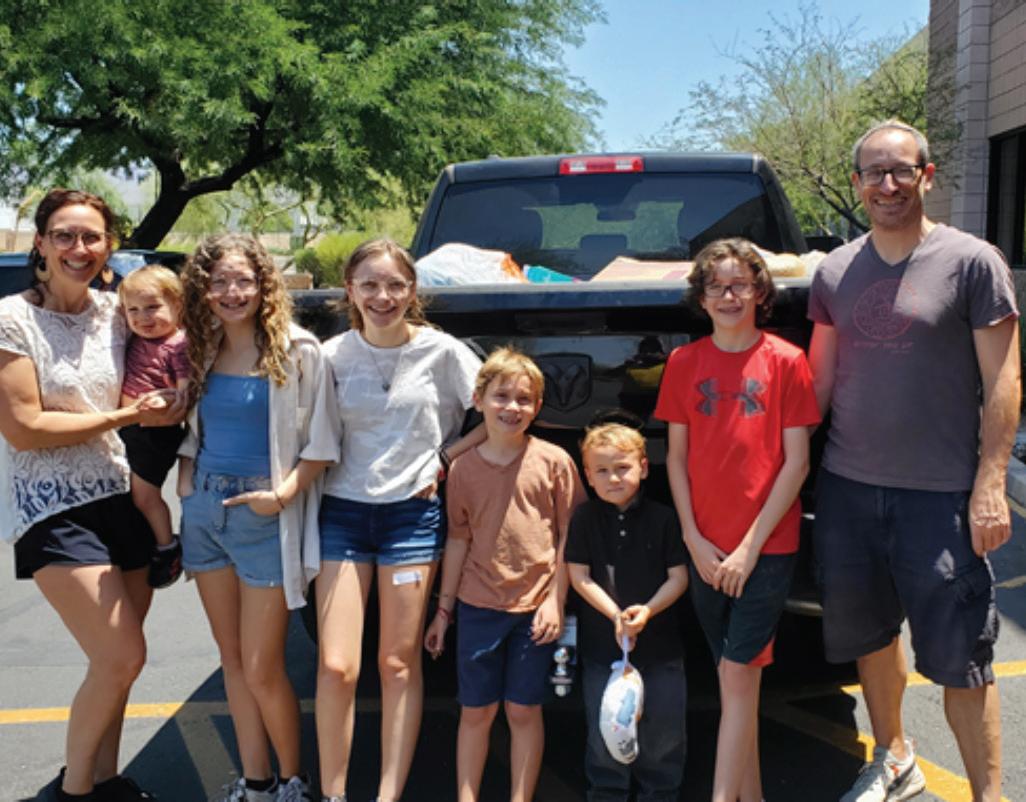
From left, Temple Beth Shalom of the West Valley President Jonathan Werbel, Cantor Baruch Koritan, Rabbi Dana Evan Kaplan and Fay Henning-Bryan, immediate past president, are pictured after July 14 services.

These bowlers were among 60 Jewish young adults who gathered at Bowlero in Scottsdale for a fun night out organized by NowGen, the young adult division of the Center for Jewish Philanthropy of Greater Phoenix. The event was also an opportunity to donate food, school supplies, hygiene products and clothing to those in need.
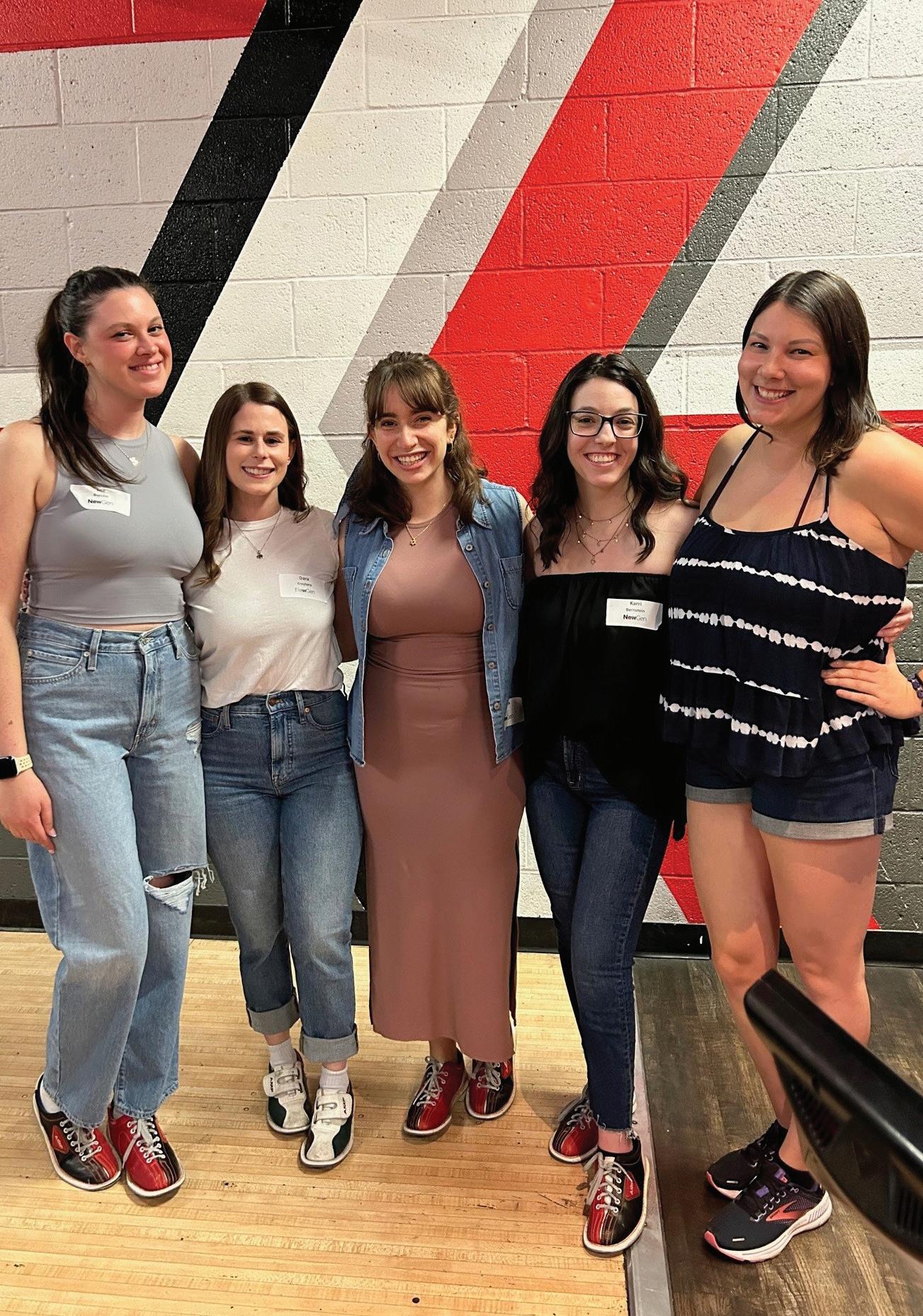
Risa Brumer, the co-director of Olami Arizona, was able to reconnect with several Olami almuni, pictured here, on her recent trip to Israel, where she “experienced many moments of clarity and connection,” she said.
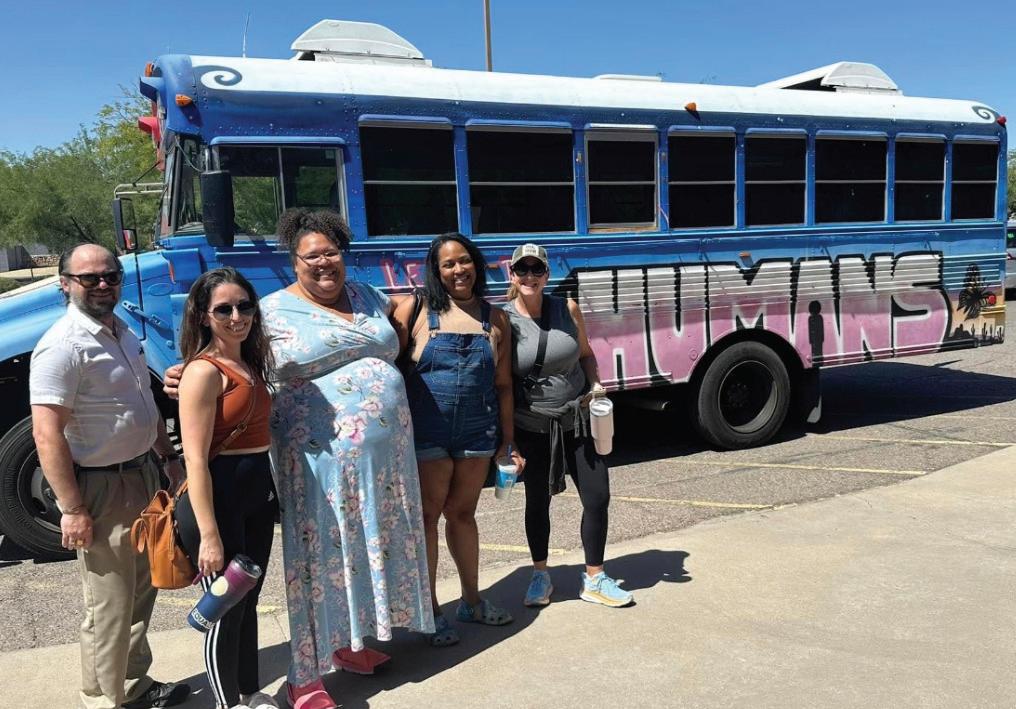

The New Shul in Scottsdale celebrated a successful first annual Back-to-School Clothing Swap in late July. People with kids up to 18 were able to swap clothes that had outgrown some and now fit others. PJ Library read stories and all unclaimed clothes were donated to AZ Jews for Justice to be distributed to refugee families.
This COMMUNITY page features photos of community members around the Valley and the world. Submit photos and details each week to editor@jewishaz.com by

The Simcha Showcase

12-3 p.m. Valley of the Sun Jewish Community Center, 12701 N. Scottsdale Road, Scottsdale. Join Event Smart Productions for a bar/bat mitzvah expo (formerly known as The Mizvahs & More Expo) featuring vendors offering services including DJ and lighting, event planners, photographers, videographers, caterers, bakers, photo booths, venues, Judaica, Jewish community resources and more. Cost: free; registration necessary. For more information, visit thesimchashowcase.com.
(Jewish News is a media sponsor of this event.)
SUNDAY, AUG. 6
TBS-EV Open House: 11 a.m.-1 p.m. Temple Beth Sholom of the East Valley, 3400 N. Dobson Road, Chandler. Join TBS-EV for an open house to meet board members, the new rabbi, Rabbi Tracee Rosen, and learn about the synagogue’s offerings. For more information, visit tbsev.org.
Film Screening: Jews of the Wild West: 2-4 p.m. Western Spirit: Scottsdale’s Museum of the West, 3830 N. Marshall Way, Scottsdale. Enjoy a community-wide showing of “Jews of the Wild West” in partnership with Center for Jewish Philanthropy and Scottsdale’s Museum of the West. Cost: $5 film only; $25 adult museum admission and film; $22 discount admission ad film for seniors, military and college students. For more information, visit scottsdalemuseumwest.org/project/ western-movie-matinee/.
FRIDAY, AUG. 11
Back to School Family Shabbat: 4-5:30 p.m. Ina Levine Jewish Community Campus, 12701 N. Scottsdale Road, Scottsdale. Join the Bureau of jewish Education of Greater Phoenix, PJ Library and Pardes jewish Day School for a family Shabbat with water activities and summer crafts. Cost: free. For more information, visit bjephoenix.org.
SATURDAY, AUG. 12
Swing Into the “New Year”: 7:30-9 p.m. Golfland Sunsplash, 155 W. Hampton Ave., Mesa. Kids in grades 7-12 are invited to join Congregation Or Tzion and Temple Beth Sholom of the East Valley for a round of miniature golf. Cost: $10 for non-youth department members. For more information, contact youth@otaz.org.
SUNDAY, AUG. 13
Family Welcome Brunch: 10 a.m.-12 p.m. Hillel at Arizona State University, 1012 S. Mill Ave., Tempe. If you are helping an incoming freshman move into their dorm at ASU, take a break and join Hillel for brunch. Cost: free. For more informtion, visit hillelasu.org.
Mega Challah Bake 4 Kids: 10:30 a.m.-12 p.m. The Friendship Circle of Greater Phoenix, 2110 E. Lincoln Dr., Phoenix. Join The Friendship Circle for a morning of challah baking, entertainment, crafts and more. Cost: $15 per child, $5 per adult, $5 additional cost if registering after Aug. 8. For more information, visit fcaz.org/ tools/events/register_cdo/eventid/15339.
Temple Beth Shalom of the West Valley Open House: 1-3 p.m. Temple Beth Shalom of the West Valley, 12202 N. 101st Ave., Sun City. Join Temple Beth Shalom for an open house to meet Rabbi Dana Evan Kaplan and temple leadership and lern about the High Holy day services and activities offered. Cost: free. For more information, visit tbsaz.org.
THURSDAY, AUG. 17
Family History Research Tips for Beginners
Workshop: 1-3 p.m. Beth El Congregation, 1118 W. Glendale Ave., Phoenix. Join Duane Roen, founding coordinator of the Project for Writing and Recording Family History, in the College of Integrative Sciences and Arts at Arizona State University. Roen will share resources, tools and strategies for getting started researching your roots. Presented by the Jewish Family & Children’s Service Center for Senior Enrichment & Crteative Aging. Cost: $10. For more information, visit jfcsaz.org/registration/.
SUNDAY, AUG. 20
Shevet Shemesh Opening Event: 3-6 p.m. Menachem Mendel Academy, 6140 E. Thunderbird Road, Scottsdale. Opportunity for kids in grades 2-12 to learn about Shevet Shemesh (Israeli Scouts) and enjoy games, activities, a foam party, snacks and drinks. Cost: free; registration required. For more information, visit jewishphoenix.com/events/ shevet-shemesh-opening-event-2023/.
Summer Music Series: 3 p.m. Arizona Jewish Historical Society, 122 E. Culver St., Phoenix. Join the Arizona Jewish Historical Society for a concert featuring Nicole Pesce presenting songs by Carole King, Neil Sedaka, Marvin Hamlisch, Burt Bacharach and others. Cost: $25 for AZJHS members; $36 for nonmembers. For more information, visit azjhs.org/ nicole.
SUNDAY, AUG. 27
Jewish Community Day with the Dbacks: 1:10-4 p.m. Chase Field, 401 E. Jefferson St., Phoenix. Join the Center for Jewish Philanthropy of Greater Phoenix and other Jewish organizations for a day out at the ballpark as the Arizona Diamondbacks play the Cincinnati Reds. Cost: $20-$58; $15 for kids ages 15 and under with the purchase of one adult ticket. For more information, visit mlb.com/dbacks/ tickets/specials/jewish-community-day.
SUNDAYS
B.A.G.E.L.S: 9-11 a.m.; last Sunday of the month. Valley of the Sun Jewish Community Center, 12701 N. Scottsdale Road, Scottsdale. Grab a bagel and a cup of coffee at Bagels And Gabbing Every Last Sunday and enjoy some time with your friends and make new ones. You must register to attend. Bagels and coffee will be provided. Cost: free for members, $5 for guests. For more information and to register, visit vosjcc.org.
THURSDAYS
Storytime at Modern Milk: 9:30 a.m. Modern Milk, 13802 N. Scottsdale Road, #163, Scottsdale. Storytime for babies, toddlers and preschoolers. Integrates children’s books and songs while giving parents new ideas for play. Cost: $5. For more information and to register, visit modernmilk.com/after-baby.
SUNDAYS Chassidus Class: 9 a.m. Online. Learn about the Chasidic movement with Rabbi Yossi Friedman. Cost: free. For more information, visit chabadaz.com.
Jewish War Veterans Post 210: 10 a.m. Online. Any active duty service member or veteran is welcome to join monthly meetings, every third Sunday. Cost: free. For more information, email Michael Chambers at c365michael@yahoo. com.
Sundays are for the Family Weekly Feed: 3-5 p.m. Tempe Beach Park, 80 W. Rio Salado Pkwy., Tempe. Join Arizona Jews for Justice and AZ HUGS for the Houseless every Sunday to serve food to those in need. For more information and to RSVP, email Arizonajews4justice@gmail.com.
Anxiety in the Modern World: 6 p.m. Online. Learn the secrets of the Torah for living stressfree in the current environment with Rabbi Boruch of Chabad of Oro Valley. Cost: free. Tune in using this link: zoom.us/j/736434666. For more information, visit chabadaz.com.
MONDAYS
Ethics of Our Fathers: 7 p.m. Online. Learn with Rabbi Zalman Levertov. Tune in at: bit. ly/2Y0wdgv. Cost: free. For more information, visit chabadaz.com.
Quotable Quotes by our Sages: 7 p.m. Online. Learn with Rabbi Shlomy Levertov. Tune in at: JewishParadiseValley.com/class. Cost: free. For more information, visit chabadaz.com.
Partners in Torah: 7:30 p.m. Online. Join a growing group of inspired learners with Project Inspire. Cost: free. Tune in at: us04web. zoom.us/j/3940479736#success, password is 613. For more information, email Robin Meyerson at robin@projectinspireaz.com.
Learning to Trust in God: 7:30 p.m. Online. Learn with Rabbi Yossi Friedman. Tune in at: ChabadAZ.com/LiveClass. Cost: free. For more information, visit chabadaz.com.
Torah & Tea: 7:30 p.m. Online. Learn with Rabbi Yossie Shemtov. Cost: free. For more information, visit Facebook.com/ChabadTucson.
TUESDAYS
Let’s Knit: 1:30 p.m. Ina Levine Jewish Community Campus, 12701 N. Scottsdale Road, Scottsdale. Share the pleasure of knitting, crocheting, etc. outside the social hall in the campus. Can’t knit? We can teach you! Every level welcome. Cost: free. For more information, visit vosjcc.org.
Maintaining an Upbeat Attitude: 7 p.m. Online. A class exclusively for people in their
20s and 30s, learn how Jewish Mysticism can help with your attitude with Rabbi Shlomy Levertov. Cost: free. Tune in at: JewishParadiseValley.com/YJPclass. For more information, visit chabadaz.com.
WEDNESDAYS
History of the Jews: 11 a.m. Online. Learn the Jewish journey from Genesis to Moshiach with Rabbi Ephraim Zimmerman. Cost: free. Tune in here: zoom.us/j/736434666. For more information, visit chabadaz.com.
Torah Study with Temple Beth Shalom of the West Valley: 11 a.m.-12:30 p.m. Online. Weekly study group explores that week’s portion and studies different perspectives and debates the merits of various arguments. Intended for adults, Torah study is open to students of all levels. For more information, contact the TBS office at 623-977-3240.
Happiness Hour: 11:30 a.m. Online. Class taught by Rabbi Pinchas Allouche that delves into texts and references culled from our traditions to address a relevant topic. For more information or to join, visit cbtvirtualworld.com.
Torah Study with Chabad: 12 p.m. Online. Take a weekly journey of Torah with Rabbi Yossi Levertov. Cost: free. For more information, visit chabadaz.com.
Lunch & Learn: 12:15 p.m. Online. Grab some food and learn with Rabbi Yehuda Ceitlin. Cost: free. Get Zoom link by emailing info@ chabadtucson.com. For more information, visit chabadtucson.com.
The Thirteen Petalled Rose: 1 p.m. Online. Kabbalah class that studies “The Thirteen Petalled Rose” by Rabbi Adin Even-Israel Steinsaltz, focusing on the many concepts of Kaballah and Jewish Mysticism and applying them to everyday life. For more information or to join, visit cbtvirtualworld.com.
JACS: 7:30-8:30 p.m. Valley of the Sun Jewish Community Center, 12701 N. Scottsdale Road, Scottsdale. In person and via Zoom support group for Jewish alcoholics, addicts and their friends and family on the first and third Wednesdays of the month. Cost: free. For more information, email jacsarizona@gmail. com or call 602-692-1004.
Words & Whiskey: 8:30 p.m. Online. Learning session for men. Cost: free. To RSVP, email rmollenaz@gmail.com or call/text 310-709-3901.
THURSDAYS
Ladies Torah & Tea: 10:30 a.m. Online. Learn about the women of the Torah with Mrs. Leah Levertov. Cost: free. Tune in at: ourjewishcenter.com/virtual. For more information, visit chabadaz.com.
Talmud - Maakos: 11 a.m. Online. Learn with Rabbi Shlomy Levertov. Cost: free. Tune in at: JewishParadiseValley.com/YJPclass. For more information, visit chabadaz.com.
Mindfulness Gatherings: 12 p.m. Online. Hosted by Hospice of the Valley via Zoom. Cost: Free. To join by phone, dial 1-253-2158782, meeting ID 486 920 2119#, to get the Zoom link or for further questions contact Gill Hamilton at ghamilton@hov.org or 602-748-3692.
The Science of Everything: 4 p.m. Online. Explore the most fundamental work of Chassidut: the Tanya, with Rabbi Boruch. Cost: free. Tune in at: zoom.us/j/736434666. For more information, visit chabadaz.com.
Teen Discussions: 7-8:30 p.m. Online. Learn with Rabbi Tzvi Rimler. Cost: free. Tune in at cteen.clickmeeting.com/east-valley. For more information, visit chabadaz.com.
Saturday Mindfulness Gatherings: 9:30 a.m. Online. Hosted by Hospice of the Valley. To join by phone, dial 1-253-215-8782, meeting ID 486 920 2119#. To get the Zoom link or for more information, contact Gill Hamilton at ghamilton@hov.org or 602-748-3692.
Book Discussion: 1:30-2:30 p.m. Online. Join Or Adam Congregation for Humanistic Judaism on the third Saturday of every month for a book discussion. For more information and to register, contact oradaminfo@gmail.com.
MONDAYS
Sip & Schmooze: 11 a.m. milk + honey, 12701 N. Scottsdale Road, Scottsdale. Sip on kosher coffee or tea, enjoy a pastry and schmooze every second Monday of the month. RSVP appreciated to chani@sosaz.org or 602-4927670. For more information, visit sosaz.org.
Featured Presentation: 12:30 p.m. Online. Join Smile on Seniors Mondays and Wednesdays to learn from a variety of presenters about topical
MILESTONES
BAT MITZVAH
ALEXA HOROWITZ
issues, like Q&As with medical professionals, entertainers and lectures. Cost: free. For more information, visit sosaz.org/virtual or email Rabbi Levi Levertov at levi@sosaz.org.
TUESDAYS
Movie Discussion Group: 11 a.m. Online. Join Smile on Seniors on the third Tuesday of every month hosted by Issy Lifshitz. Cost: free. For full details and the movie of the month visit sosaz.org/virtual or email Rabbi Levi Levertov at levi@sosaz.org.
WEDNESDAYS
Fitness Fun with Zoe: 10-10:45 a.m. Online. Presented by JFCS Center for Senior Enrichment. Workout features light chair exercises with optional weights. Cost: free. For more information, visit jfcsaz.org/cse.
Chair Yoga with Zoe: 11-11:45 a.m. Online. Presented by JFCS Center for Senior Enrichment. 45-minute chair yoga class. No prior yoga experience required. Cost: free. For more information, visit jfcsaz.org/cse.
THURSDAYS
Memory Cafe: 10-11 a.m. first Thursday; 1-2 p.m. third Thursday. Online. Presented by Jewish Family & Children’s Service. Program for those with changes in their thinking or memory, mild cognitive impairment due to Alzheimer’s disease or a related disorder, along with their care partners. For more information, visit jfcsaz.org/our-services/older-adult-services/ memory-cafe/.
In the Kitchen with Benita: 12:30 p.m. Join Smile on Seniors on the fourth Thursday of every month for some delicious cooking or baking fun! Cost: free. For full details visit sosaz.org/virtual or email Rabbi Levi Levertov at levi@sosaz.org.
FRIDAYS
Welcome Shabbat: 11-11:30 a.m. Online. Celebrate Shabbat with the JFCS Virtual Center for Senior Enrichment. Each week a different guest host will lead the program with song and celebration. Cost: free. For more information, visit jfcsaz.org/cse. JN
Alexa Horowitz will become a bat mitzvah on Aug. 19, 2023, at Temple Solel.
She is the daughter of Gary and Shari Horowitz of Scottsdale.
Alexa is the granddaughter of Howie and Sandy Reichsfeld of Scottsdale; the late Allan Horowitz; and the late Fred and Jan Ligerman.
For her mitzvah project, Alexa participated in the Friendship Circle of Arizona events. The Friendship Circle provides assistance and support to families of children with special needs. She attended Sunday Circle each month, put together a team for Jonathan’s Walk and raised money through sponsors.
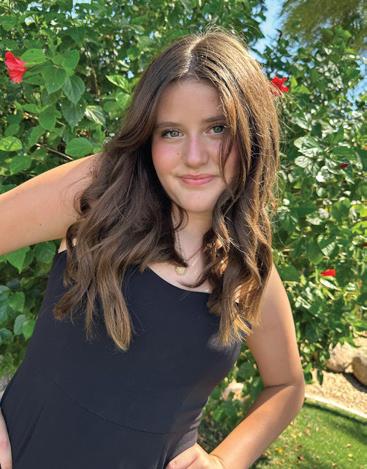
A student at Desert Shadows, Alexa enjoys dancing, playing volleyball, traveling and spending time with friends and family. JN
ALEX JOINER JR. AND ABERTINE UMUHOZA MURASIRA
Alex Joiner Jr. of Phoenix and Abertine Umuhoza Murasira of Kigali, Rwanda, announce their engagement.

Mother of the groom-to-be is Ernestine Sutton, father is deceased. Both of the bride-to-be’s parents are deceased.
Alex graduated from college in 2012 and works as a mortgage broker.
Albertine graduated from college in 2012 and works as a cabin captain.
The couple became engaged on June 30, 2023. JN
Joyce Cooper passed away, peacefully in her sleep, at the age of 77. She courageously battled glioblastoma, an aggressive form of brain cancer, far outliving her initial prognosis. She was born in Philadelphia to Irving and Libby Kosloff. She married the love of her life, Jay Cooper, in 1966; they were together until his death in 2003.
Joyce was a loving daughter, wife, mother, grandmother, sister, mother-in-law, aunt and friend. Her art brightened the rooms wherever it hung, and her smile brightened the hearts of all those who saw it. Quick to laugh, and quicker to offer words of love and support, Joyce loved spending time with her family and friends. She wanted everyone to know she was grateful for the life she lived.
She loved painting and drawing — especially with her grandchildren. She adored art — both creating it and admiring the work of others.
Joyce is lovingly remembered by her daughters Jenna (Steffen Lipofsky), Jill (Matthew Lefferman) and Jessica (Mark Brodie); and grandchildren Maia, Joshua and Jacob Lefferman, Jonas and Lucy Lipofsky and Jackson and Emily Brodie. Donations in her memory can be made to The New Shul in Scottsdale (thenewshul.org).
GLADYS ENGELSON
Gladys Engelson of Scottsdale died on July 10, 2023. She was 92. Gladys was born in Bronx, New York.
Gladys is survived by daughters Melinda Spilka (Bruce) and Susan Engelson; son Jon Engelson (Marcie); six grandchildren and three great-grandchildren. She was preceded in death by husband, Matheas Engelson; son Steven Engelson; grandson Zachary Gold; sister, Edith Jonas; and parents, Abe and Ida Stavisky.
Services were held on July 13, 2023, at Green Acres Cemetery and officiated by Rabbi Levi Levertov.
Donations in her name can be made to Smile On Seniors (sosaz.org). JN
2 plots –Numbers 452-453 10,000 for Both Call 480-585-5500
Sandy Yanklowitz, 74 years old, passed peacefully in Scottsdale on July 9, 2023, with family around her bedside. She was born in New Brunswick, New Jersey, at Middlesex Hospital on December 25, 1948, to Mitchell and Betty Janowski.
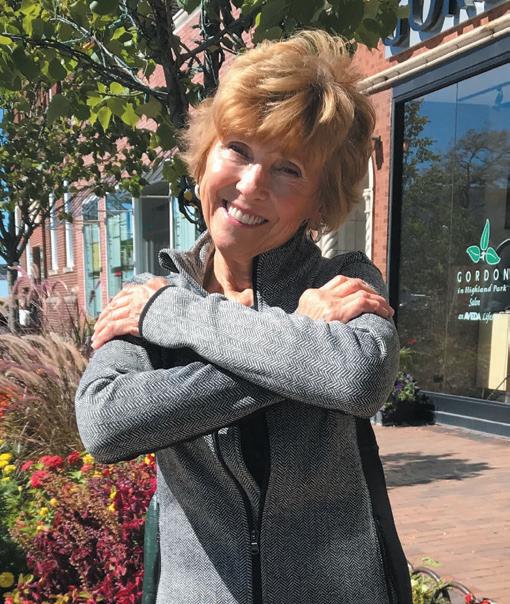
She went to Monroe Elementary School, which was right next to her home since her grandfather donated the land to the town for the school to be built. Sandy later went to St. Peter’s High School in New Brunswick, Rutgers University (Douglas College) for her undergraduate degree and Montclair State University for her master’s in speech pathology.
Sandy worked for decades as a speech therapist specializing in the development of communication skills in various schools in New Jersey and Illinois, where she gave her full attention and compassion to many hundreds of students. At other times, she also worked as a real estate agent. She moved to Scottsdale two and a half years ago to be close to family and she became a regular volunteer at Valley Beit Midrash’s humanitarian programs helping to serve the vulnerable around the Valley. She also volunteered supporting the rescue and placement of dogs.
Sandy was a devout and faithful Christian, an active exerciser, an avid reader, a passionately engaged volunteer and she made friends everywhere she went. While suffering with her own illness, she was a counselor to many women around the country suffering from terminal illness. She was a role model for her resiliency, faith, warmth, kindness and positivity.
Her memory is cherished by her two sons Scott (Maura) and Shmuly (Shoshana) Yanklowitz; her seven grandchildren Bailee, Leo, Dominic, Amiella, Lev, Maya and Shay; her four siblings Debby Breese, Jill (Bob) Lawless, Patti (Jack) Haraburda and Mitch (Kim) Janowski; and her dog, Lulu.
May Sandy’s memory be a sweet blessing and may all who loved her be comforted. In her memory and merit, we invite everyone to do three random acts of kindness. Rabbi Shmuly wishes to thank everyone around the Greater Phoenix Jewish community who joined the shiva minyanim and who donated to VBM in his beloved mother’s honor.




